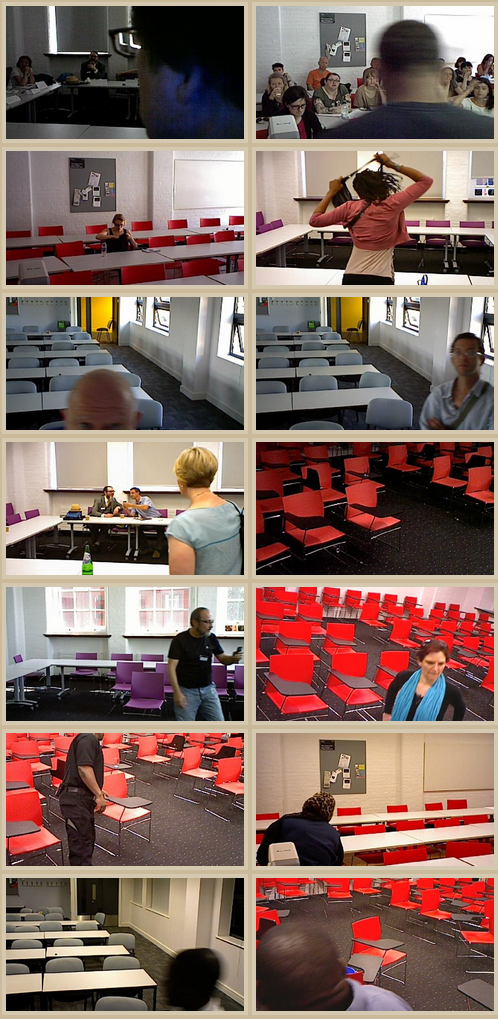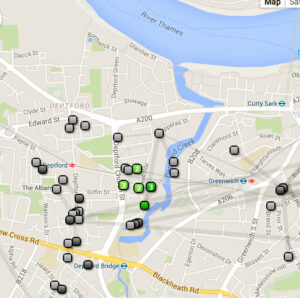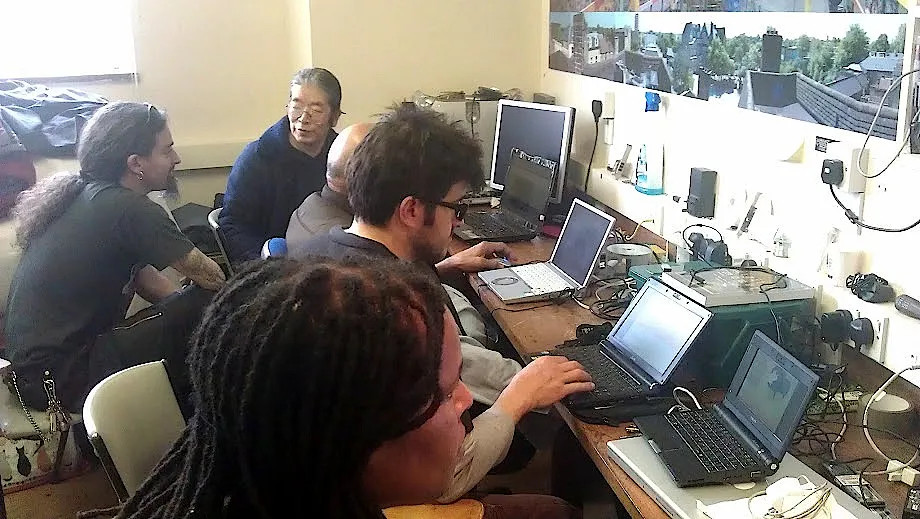91995
1
apa
30
default
133
https://www.kiddingthecity.org/wp-content/plugins/zotpress/
%7B%22status%22%3A%22success%22%2C%22updateneeded%22%3Afalse%2C%22instance%22%3Afalse%2C%22meta%22%3A%7B%22request_last%22%3A0%2C%22request_next%22%3A0%2C%22used_cache%22%3Atrue%7D%2C%22data%22%3A%5B%7B%22key%22%3A%22C5T7S5MV%22%2C%22library%22%3A%7B%22id%22%3A91995%7D%2C%22meta%22%3A%7B%22numChildren%22%3A0%7D%2C%22bib%22%3A%22%3Cdiv%20class%3D%5C%22csl-bib-body%5C%22%20style%3D%5C%22line-height%3A%202%3B%20padding-left%3A%201em%3B%20text-indent%3A-1em%3B%5C%22%3E%5Cn%20%20%3Cdiv%20class%3D%5C%22csl-entry%5C%22%3E%5BAudio%20recording%5D%20%28No.%20Indexicality%29.%20%28n.d.%29.%20%5BAudio%20recording%5D.%20%3Ca%20class%3D%27zp-ItemURL%27%20href%3D%27https%3A%5C%2F%5C%2Fshows.acast.com%5C%2Fthe-data-fix%5C%2Fepisodes%5C%2Findexicality-with-roland-meyer-and-gillian-rose%27%3Ehttps%3A%5C%2F%5C%2Fshows.acast.com%5C%2Fthe-data-fix%5C%2Fepisodes%5C%2Findexicality-with-roland-meyer-and-gillian-rose%3C%5C%2Fa%3E%3C%5C%2Fdiv%3E%5Cn%3C%5C%2Fdiv%3E%22%2C%22data%22%3A%7B%22itemType%22%3A%22podcast%22%2C%22title%22%3A%22%22%2C%22creators%22%3A%5B%5D%2C%22abstractNote%22%3A%22%22%2C%22episodeNumber%22%3A%22Indexicality%22%2C%22audioFileType%22%3A%22%22%2C%22runningTime%22%3A%22%22%2C%22url%22%3A%22https%3A%5C%2F%5C%2Fshows.acast.com%5C%2Fthe-data-fix%5C%2Fepisodes%5C%2Findexicality-with-roland-meyer-and-gillian-rose%22%2C%22language%22%3A%22%22%2C%22collections%22%3A%5B%229B3VLCQP%22%5D%2C%22dateModified%22%3A%222025-02-28T09%3A04%3A51Z%22%7D%7D%2C%7B%22key%22%3A%22KLUQ46SV%22%2C%22library%22%3A%7B%22id%22%3A91995%7D%2C%22meta%22%3A%7B%22creatorSummary%22%3A%22Meyer%22%2C%22parsedDate%22%3A%222025%22%2C%22numChildren%22%3A0%7D%2C%22bib%22%3A%22%3Cdiv%20class%3D%5C%22csl-bib-body%5C%22%20style%3D%5C%22line-height%3A%202%3B%20padding-left%3A%201em%3B%20text-indent%3A-1em%3B%5C%22%3E%5Cn%20%20%3Cdiv%20class%3D%5C%22csl-entry%5C%22%3EMeyer%2C%20R.%20%282025%29.%20%26%23x201C%3BPlatform%20Realism%26%23x201D%3B.%20AI%20Image%20Synthesis%20and%20the%20Rise%20of%20Generic%20Visual%20Content.%20%3Ci%3ETransbordeur%3C%5C%2Fi%3E%2C%20%3Ci%3E9%3C%5C%2Fi%3E.%20%3Ca%20class%3D%27zp-DOIURL%27%20href%3D%27https%3A%5C%2F%5C%2Fdoi.org%5C%2F10.4000%5C%2F13dwq%27%3Ehttps%3A%5C%2F%5C%2Fdoi.org%5C%2F10.4000%5C%2F13dwq%3C%5C%2Fa%3E%3C%5C%2Fdiv%3E%5Cn%3C%5C%2Fdiv%3E%22%2C%22data%22%3A%7B%22itemType%22%3A%22journalArticle%22%2C%22title%22%3A%22%5Cu201cPlatform%20Realism%5Cu201d.%20AI%20Image%20Synthesis%20and%20the%20Rise%20of%20Generic%20Visual%20Content%22%2C%22creators%22%3A%5B%7B%22creatorType%22%3A%22author%22%2C%22firstName%22%3A%22Roland%22%2C%22lastName%22%3A%22Meyer%22%7D%5D%2C%22abstractNote%22%3A%22With%20each%20update%2C%20AI%20image-synthesis%20models%20such%20as%20DALL-E%20and%20Midjourney%20promise%20more%20%5Cu201crealistic%5Cu201d%20representations.%20However%2C%20as%20the%20essay%20shows%2C%20the%20supposed%20%5Cu201creality%5Cu201d%20they%20represent%20is%20not%20only%20heavily%20biased%20toward%20white%2C%20Western%2C%20male%2C%20middle-class%20aesthetic%20values%20and%20ideological%20preferences%20but%20is%20also%20inherently%20generic.%20AI%20images%20are%20derived%20from%20billions%20of%20past%20images%2C%20filtered%20through%20verbal%20concepts%2C%20adapted%20to%20corporate%20standards%2C%20and%20optimized%20for%20consumer%20expectations.%20The%20effect%20might%20be%20called%20%5Cu201cplatform%20realism%5Cu201d%3A%20a%20second-order%20aesthetic%20of%20generic%20images.%20The%20essay%20develops%20this%20concept%20of%20%5Cu201cplatform%20realism%2C%5Cu201d%20situating%20AI%20image%20synthesis%5Cu2019s%20aesthetics%20within%20a%20broader%20history%20of%20generic%20visual%20content%2C%20examining%20its%20infrastructural%20conditions%20within%20contemporary%20platform%20capitalism%2C%20and%20outlining%20its%20implications%20for%20digital%20visual%20culture.%5Cn%20%20%20%20%20%20%20%20%20%20%2C%20%5Cn%20%20%20%20%20%20%20%20%20%20%20%20%5Cu00c0%20chaque%20mise%20%5Cu00e0%20jour%2C%20les%20mod%5Cu00e8les%20de%20g%5Cu00e9n%5Cu00e9ration%20d%5Cu2019image%20par%20IA%20tels%20que%20DALL-E%20et%20Midjourney%20promettent%20des%20repr%5Cu00e9sentations%20toujours%20plus%20%5Cu00ab%5Cu00a0r%5Cu00e9alistes%5Cu00a0%5Cu00bb.%20Comme%20le%20montre%20toutefois%20cet%20article%2C%20ce%20soi-disant%20%5Cu00ab%5Cu00a0r%5Cu00e9alisme%5Cu00a0%5Cu00bb%20trahit%20des%20biais%20favorisant%20des%20valeurs%20esth%5Cu00e9tiques%20et%20des%20pr%5Cu00e9f%5Cu00e9rences%20id%5Cu00e9ologiques%20li%5Cu00e9es%20%5Cu00e0%20un%20public%20majoritairement%20blanc%2C%20occidental%2C%20masculin%20et%20issu%20de%20la%20classe%20moyenne%2C%20tout%20en%20%5Cu00e9tant%20intrins%5Cu00e8quement%20g%5Cu00e9n%5Cu00e9rique.%20Les%20images%20g%5Cu00e9n%5Cu00e9r%5Cu00e9es%20par%20l%5Cu2019IA%20sont%20produites%20%5Cu00e0%20partir%20de%20milliards%20d%5Cu2019images%20existantes%2C%20filtr%5Cu00e9es%20au%20moyen%20de%20concepts%20linguistiques%2C%20adapt%5Cu00e9es%20aux%20normes%20des%20soci%5Cu00e9t%5Cu00e9s%20et%20optimis%5Cu00e9es%20pour%20les%20attentes%20des%20consommateurs.%20On%20nommera%20cet%20effet%20le%20%5Cu00ab%5Cu00a0r%5Cu00e9alisme%20de%20plateforme%5Cu00a0%5Cu00bb%5Cu00a0%3A%20une%20esth%5Cu00e9tique%20de%20second%20ordre%20reposant%20sur%20des%20images%20g%5Cu00e9n%5Cu00e9riques.%20Cet%20article%20d%5Cu00e9veloppe%20ce%20concept%20en%20repla%5Cu00e7ant%20l%5Cu2019esth%5Cu00e9tique%20picturale%20de%20l%5Cu2019IA%20g%5Cu00e9n%5Cu00e9rative%20au%20sein%20d%5Cu2019une%20histoire%20plus%20vaste%20du%20contenu%20visuel%20g%5Cu00e9n%5Cu00e9rique%2C%20en%20examinant%20son%20infrastructure%20au%20sein%20du%20capitalisme%20de%20plateforme%20contemporain%20et%20en%20esquissant%20ses%20possibles%20cons%5Cu00e9quences%20pour%20la%20culture%20visuelle%20num%5Cu00e9rique.%22%2C%22date%22%3A%222025%22%2C%22language%22%3A%22%22%2C%22DOI%22%3A%2210.4000%5C%2F13dwq%22%2C%22ISSN%22%3A%222552-9137%2C%203073-5734%22%2C%22url%22%3A%22https%3A%5C%2F%5C%2Fjournals.openedition.org%5C%2Ftransbordeur%5C%2F2299%22%2C%22collections%22%3A%5B%229B3VLCQP%22%5D%2C%22dateModified%22%3A%222025-02-28T08%3A59%3A31Z%22%7D%7D%2C%7B%22key%22%3A%22BFS7HPI3%22%2C%22library%22%3A%7B%22id%22%3A91995%7D%2C%22meta%22%3A%7B%22creatorSummary%22%3A%22Tone%22%2C%22parsedDate%22%3A%222025-02-18%22%2C%22numChildren%22%3A0%7D%2C%22bib%22%3A%22%3Cdiv%20class%3D%5C%22csl-bib-body%5C%22%20style%3D%5C%22line-height%3A%202%3B%20padding-left%3A%201em%3B%20text-indent%3A-1em%3B%5C%22%3E%5Cn%20%20%3Cdiv%20class%3D%5C%22csl-entry%5C%22%3ETone%2C%20S.%20%282025%2C%20February%2018%29.%20%3Ci%3EAs%20DeepSeek%20Expands%2C%20China%26%23x2019%3Bs%20Cities%20Roll%20Out%20%26%23x2018%3BAI%20Public%20Servants.%26%23x2019%3B%3C%5C%2Fi%3E%20%23SixthTone.%20%3Ca%20class%3D%27zp-ItemURL%27%20href%3D%27https%3A%5C%2F%5C%2Fwww.sixthtone.com%5C%2Fnews%5C%2F1016677%27%3Ehttps%3A%5C%2F%5C%2Fwww.sixthtone.com%5C%2Fnews%5C%2F1016677%3C%5C%2Fa%3E%3C%5C%2Fdiv%3E%5Cn%3C%5C%2Fdiv%3E%22%2C%22data%22%3A%7B%22itemType%22%3A%22webpage%22%2C%22title%22%3A%22As%20DeepSeek%20Expands%2C%20China%5Cu2019s%20Cities%20Roll%20Out%20%5Cu2018AI%20Public%20Servants%5Cu2019%22%2C%22creators%22%3A%5B%7B%22creatorType%22%3A%22author%22%2C%22firstName%22%3A%22Sixth%22%2C%22lastName%22%3A%22Tone%22%7D%5D%2C%22abstractNote%22%3A%22From%20Hohhot%20to%20Guangzhou%2C%20local%20governments%20are%20integrating%20DeepSeek%20AI%20in%20government%20cloud%20systems%20to%20streamline%20administration%20and%20public%20services.%22%2C%22date%22%3A%22Tue%20Feb%2018%2003%3A13%3A00%20PST%202025%22%2C%22url%22%3A%22https%3A%5C%2F%5C%2Fwww.sixthtone.com%5C%2Fnews%5C%2F1016677%22%2C%22language%22%3A%22%22%2C%22collections%22%3A%5B%22URX8VM2Z%22%5D%2C%22dateModified%22%3A%222025-02-19T12%3A42%3A39Z%22%7D%7D%2C%7B%22key%22%3A%22GDNDG7IK%22%2C%22library%22%3A%7B%22id%22%3A91995%7D%2C%22meta%22%3A%7B%22creatorSummary%22%3A%22McQuillan%22%2C%22parsedDate%22%3A%222022%22%2C%22numChildren%22%3A0%7D%2C%22bib%22%3A%22%3Cdiv%20class%3D%5C%22csl-bib-body%5C%22%20style%3D%5C%22line-height%3A%202%3B%20padding-left%3A%201em%3B%20text-indent%3A-1em%3B%5C%22%3E%5Cn%20%20%3Cdiv%20class%3D%5C%22csl-entry%5C%22%3EMcQuillan%2C%20D.%20%282022%29.%20%3Ci%3EResisting%20AI%3A%20an%20anti-fascist%20approach%20to%20artificial%20intelligence%3C%5C%2Fi%3E.%20Bristol%20University%20Press.%3C%5C%2Fdiv%3E%5Cn%3C%5C%2Fdiv%3E%22%2C%22data%22%3A%7B%22itemType%22%3A%22book%22%2C%22title%22%3A%22Resisting%20AI%3A%20an%20anti-fascist%20approach%20to%20artificial%20intelligence%22%2C%22creators%22%3A%5B%7B%22creatorType%22%3A%22author%22%2C%22firstName%22%3A%22Dan%22%2C%22lastName%22%3A%22McQuillan%22%7D%5D%2C%22abstractNote%22%3A%22%5C%22Artificial%20Intelligence%20%28AI%29%20is%20everywhere%2C%20yet%20it%20causes%20damage%20to%20society%20in%20ways%20that%20can%27t%20be%20fixed.%20Calling%20for%20the%20restructuring%20of%20AI%2C%20Dan%20McQuillan%20sets%20out%20an%20anti-fascist%20approach%20that%20replaces%20exclusions%20with%20caring%20and%20outlines%20new%20mechanisms%20that%20support%20collective%20freedom.%20Artificial%20Intelligence%20%28AI%29%20is%20everywhere%2C%20yet%20it%20causes%20damage%20to%20society%20in%20ways%20that%20can%27t%20be%20fixed.%20Instead%20of%20helping%20to%20address%20our%20current%20crises%2C%20AI%20causes%20divisions%20that%20limit%20people%27s%20life%20chances%2C%20and%20even%20suggests%20fascistic%20solutions%20to%20social%20problems.%20This%20book%20provides%20an%20analysis%20of%20AI%27s%20deep%20learning%20technology%20and%20its%20political%20effects%20and%20traces%20the%20ways%20that%20it%20resonates%20with%20contemporary%20political%20and%20social%20currents%2C%20from%20global%20austerity%20to%20the%20rise%20of%20the%20far%20right.%20Dan%20McQuillan%20calls%20for%20us%20to%20resist%20AI%20as%20we%20know%20it%20and%20restructure%20it%20by%20prioritising%20the%20common%20good%20over%20algorithmic%20optimisation.%20He%20sets%20out%20an%20anti-fascist%20approach%20to%20AI%20that%20replaces%20exclusions%20with%20caring%2C%20proposes%20people%27s%20councils%20as%20a%20way%20to%20restructure%20AI%20through%20mutual%20aid%20and%20outlines%20new%20mechanisms%20that%20would%20adapt%20to%20changing%20times%20by%20supporting%20collective%20freedom.%20Academically%20rigorous%2C%20yet%20accessible%20to%20a%20socially%20engaged%20readership%2C%20this%20unique%20book%20will%20be%20of%20interest%20to%20all%20who%20wish%20to%20challenge%20the%20social%20logic%20of%20AI%20by%20reasserting%20the%20importance%20of%20the%20common%20good%5C%22--Back%20cover%22%2C%22date%22%3A%222022%22%2C%22language%22%3A%22%22%2C%22ISBN%22%3A%22978-1-5292-1349-2%20978-1-5292-1350-8%22%2C%22url%22%3A%22%22%2C%22collections%22%3A%5B%22URX8VM2Z%22%5D%2C%22dateModified%22%3A%222025-02-17T10%3A36%3A22Z%22%7D%7D%2C%7B%22key%22%3A%2226NPYULZ%22%2C%22library%22%3A%7B%22id%22%3A91995%7D%2C%22meta%22%3A%7B%22creatorSummary%22%3A%22Muldoon%20et%20al.%22%2C%22parsedDate%22%3A%222024%22%2C%22numChildren%22%3A0%7D%2C%22bib%22%3A%22%3Cdiv%20class%3D%5C%22csl-bib-body%5C%22%20style%3D%5C%22line-height%3A%202%3B%20padding-left%3A%201em%3B%20text-indent%3A-1em%3B%5C%22%3E%5Cn%20%20%3Cdiv%20class%3D%5C%22csl-entry%5C%22%3EMuldoon%2C%20J.%2C%20Graham%2C%20M.%2C%20%26amp%3B%20Cant%2C%20C.%20%282024%29.%20%3Ci%3EFeeding%20the%20machine%3A%20the%20hidden%20human%20labour%20powering%20AI%3C%5C%2Fi%3E.%20Canongate.%3C%5C%2Fdiv%3E%5Cn%3C%5C%2Fdiv%3E%22%2C%22data%22%3A%7B%22itemType%22%3A%22book%22%2C%22title%22%3A%22Feeding%20the%20machine%3A%20the%20hidden%20human%20labour%20powering%20AI%22%2C%22creators%22%3A%5B%7B%22creatorType%22%3A%22author%22%2C%22firstName%22%3A%22James%22%2C%22lastName%22%3A%22Muldoon%22%7D%2C%7B%22creatorType%22%3A%22author%22%2C%22firstName%22%3A%22Mark%22%2C%22lastName%22%3A%22Graham%22%7D%2C%7B%22creatorType%22%3A%22author%22%2C%22firstName%22%3A%22Callum%22%2C%22lastName%22%3A%22Cant%22%7D%5D%2C%22abstractNote%22%3A%22%22%2C%22date%22%3A%222024%22%2C%22language%22%3A%22eng%22%2C%22ISBN%22%3A%22978-1-83726-181-9%20978-1-83726-182-6%22%2C%22url%22%3A%22%22%2C%22collections%22%3A%5B%22TDSBE6AM%22%5D%2C%22dateModified%22%3A%222025-02-11T12%3A43%3A11Z%22%7D%7D%2C%7B%22key%22%3A%22HWUKJD3R%22%2C%22library%22%3A%7B%22id%22%3A91995%7D%2C%22meta%22%3A%7B%22creatorSummary%22%3A%22Gill%20and%20Graham%22%2C%22parsedDate%22%3A%222025%22%2C%22numChildren%22%3A0%7D%2C%22bib%22%3A%22%3Cdiv%20class%3D%5C%22csl-bib-body%5C%22%20style%3D%5C%22line-height%3A%202%3B%20padding-left%3A%201em%3B%20text-indent%3A-1em%3B%5C%22%3E%5Cn%20%20%3Cdiv%20class%3D%5C%22csl-entry%5C%22%3EGill%2C%20J.%2C%20%26amp%3B%20Graham%2C%20M.%20%282025%29.%20%3Ci%3EQ%26amp%3BA%3A%20EU%20law%20%26%23x201C%3Blast%20best%20hope%26%23x201D%3B%20to%20protect%20ghost%20workers%20feeding%20AI%20%7C%20Context%3C%5C%2Fi%3E.%20%3Ca%20class%3D%27zp-ItemURL%27%20href%3D%27https%3A%5C%2F%5C%2Fwww.context.news%5C%2Fai%5C%2Feu-law-last-best-hope-to-protect-ghost-workers-feeding-ai%27%3Ehttps%3A%5C%2F%5C%2Fwww.context.news%5C%2Fai%5C%2Feu-law-last-best-hope-to-protect-ghost-workers-feeding-ai%3C%5C%2Fa%3E%3C%5C%2Fdiv%3E%5Cn%3C%5C%2Fdiv%3E%22%2C%22data%22%3A%7B%22itemType%22%3A%22webpage%22%2C%22title%22%3A%22Q%26A%3A%20EU%20law%20%27last%20best%20hope%27%20to%20protect%20ghost%20workers%20feeding%20AI%20%7C%20Context%22%2C%22creators%22%3A%5B%7B%22creatorType%22%3A%22author%22%2C%22firstName%22%3A%22Joanna%22%2C%22lastName%22%3A%22Gill%22%7D%2C%7B%22creatorType%22%3A%22author%22%2C%22firstName%22%3A%22Mark%22%2C%22lastName%22%3A%22Graham%22%7D%5D%2C%22abstractNote%22%3A%22New%20European%20rules%20could%20deliver%20more%20equitable%20future%20for%20the%20hidden%20labour%20powering%20AI%22%2C%22date%22%3A%2202%5C%2F2025%22%2C%22url%22%3A%22https%3A%5C%2F%5C%2Fwww.context.news%5C%2Fai%5C%2Feu-law-last-best-hope-to-protect-ghost-workers-feeding-ai%22%2C%22language%22%3A%22en%22%2C%22collections%22%3A%5B%22TDSBE6AM%22%5D%2C%22dateModified%22%3A%222025-02-11T12%3A32%3A24Z%22%7D%7D%2C%7B%22key%22%3A%226TEP3SMP%22%2C%22library%22%3A%7B%22id%22%3A91995%7D%2C%22meta%22%3A%7B%22creatorSummary%22%3A%22Ward%20et%20al.%22%2C%22parsedDate%22%3A%222025%22%2C%22numChildren%22%3A0%7D%2C%22bib%22%3A%22%3Cdiv%20class%3D%5C%22csl-bib-body%5C%22%20style%3D%5C%22line-height%3A%202%3B%20padding-left%3A%201em%3B%20text-indent%3A-1em%3B%5C%22%3E%5Cn%20%20%3Cdiv%20class%3D%5C%22csl-entry%5C%22%3EWard%2C%20K.%2C%20Abbruzzese%2C%20T.%2C%20Bunnell%2C%20T.%2C%20Cardullo%2C%20P.%2C%20Chang%2C%20I.-C.%20C.%2C%20Miller%2C%20B.%2C%20Ribera-Fumaz%2C%20R.%2C%20Shin%2C%20H.%2C%20Spicer%2C%20Z.%2C%20%26amp%3B%20Woods%2C%20O.%20%282025%29.%20A%20comparison%20of%20comparisons%3A%20evidence%20from%20an%20international%20comparative%20study%20of%20%26%23x201C%3Bsmart%20cities.%26%23x201D%3B%20%3Ci%3EEnvironment%20and%20Planning%20C%3A%20Government%20and%20Policy%3C%5C%2Fi%3E.%3C%5C%2Fdiv%3E%5Cn%3C%5C%2Fdiv%3E%22%2C%22data%22%3A%7B%22itemType%22%3A%22journalArticle%22%2C%22title%22%3A%22A%20comparison%20of%20comparisons%3A%20evidence%20from%20an%20international%20comparative%20study%20of%20%5Cu201csmart%20cities%5Cu201d%22%2C%22creators%22%3A%5B%7B%22creatorType%22%3A%22author%22%2C%22firstName%22%3A%22Kevin%22%2C%22lastName%22%3A%22Ward%22%7D%2C%7B%22creatorType%22%3A%22author%22%2C%22firstName%22%3A%22Teresa%22%2C%22lastName%22%3A%22Abbruzzese%22%7D%2C%7B%22creatorType%22%3A%22author%22%2C%22firstName%22%3A%22Timothy%22%2C%22lastName%22%3A%22Bunnell%22%7D%2C%7B%22creatorType%22%3A%22author%22%2C%22firstName%22%3A%22Paolo%22%2C%22lastName%22%3A%22Cardullo%22%7D%2C%7B%22creatorType%22%3A%22author%22%2C%22firstName%22%3A%22I.-Chun%20Catherine%22%2C%22lastName%22%3A%22Chang%22%7D%2C%7B%22creatorType%22%3A%22author%22%2C%22firstName%22%3A%22Byron%22%2C%22lastName%22%3A%22Miller%22%7D%2C%7B%22creatorType%22%3A%22author%22%2C%22firstName%22%3A%22Ramon%22%2C%22lastName%22%3A%22Ribera-Fumaz%22%7D%2C%7B%22creatorType%22%3A%22author%22%2C%22firstName%22%3A%22HaeRan%22%2C%22lastName%22%3A%22Shin%22%7D%2C%7B%22creatorType%22%3A%22author%22%2C%22firstName%22%3A%22Zacharia%22%2C%22lastName%22%3A%22Spicer%22%7D%2C%7B%22creatorType%22%3A%22author%22%2C%22firstName%22%3A%22Orlando%22%2C%22lastName%22%3A%22Woods%22%7D%5D%2C%22abstractNote%22%3A%22%22%2C%22date%22%3A%222025%22%2C%22language%22%3A%22%22%2C%22DOI%22%3A%22%22%2C%22ISSN%22%3A%22%22%2C%22url%22%3A%22%22%2C%22collections%22%3A%5B%22DUIEHARA%22%5D%2C%22dateModified%22%3A%222025-02-04T12%3A47%3A32Z%22%7D%7D%2C%7B%22key%22%3A%22V6WPMCB5%22%2C%22library%22%3A%7B%22id%22%3A91995%7D%2C%22meta%22%3A%7B%22creatorSummary%22%3A%22Frenkiel%20and%20Delorme%22%2C%22parsedDate%22%3A%222025-01-15%22%2C%22numChildren%22%3A0%7D%2C%22bib%22%3A%22%3Cdiv%20class%3D%5C%22csl-bib-body%5C%22%20style%3D%5C%22line-height%3A%202%3B%20padding-left%3A%201em%3B%20text-indent%3A-1em%3B%5C%22%3E%5Cn%20%20%3Cdiv%20class%3D%5C%22csl-entry%5C%22%3EFrenkiel%2C%20E.%2C%20%26amp%3B%20Delorme%2C%20C.%20%282025%29.%20Boosting%2C%20not%20replacing%3A%20Online%20deliberation%20tools%20in%20a%20face-to-face%20student%20citizens%26%23x2019%3B%20assembly.%20%3Ci%3ERecherches%20en%20Communication%3C%5C%2Fi%3E%2C%20%3Ci%3E56%3C%5C%2Fi%3E%2C%2047%26%23x2013%3B76.%20%3Ca%20class%3D%27zp-DOIURL%27%20href%3D%27https%3A%5C%2F%5C%2Fdoi.org%5C%2F10.14428%5C%2Frec.v56i.78543%27%3Ehttps%3A%5C%2F%5C%2Fdoi.org%5C%2F10.14428%5C%2Frec.v56i.78543%3C%5C%2Fa%3E%3C%5C%2Fdiv%3E%5Cn%3C%5C%2Fdiv%3E%22%2C%22data%22%3A%7B%22itemType%22%3A%22journalArticle%22%2C%22title%22%3A%22Boosting%2C%20not%20replacing%3A%20Online%20deliberation%20tools%20in%20a%20face-to-face%20student%20citizens%5Cu2019%20assembly%22%2C%22creators%22%3A%5B%7B%22creatorType%22%3A%22author%22%2C%22firstName%22%3A%22Emilie%22%2C%22lastName%22%3A%22Frenkiel%22%7D%2C%7B%22creatorType%22%3A%22author%22%2C%22firstName%22%3A%22Chanez%22%2C%22lastName%22%3A%22Delorme%22%7D%5D%2C%22abstractNote%22%3A%22This%20article%20investigates%20the%20cautious%20approach%20to%20digitalising%20face-to-face%20deliberation%20and%20re-evaluates%20the%20benefits%20of%20online%20deliberation%20in%20the%20post-COVID%20era%2C%20where%20hybrid%20processes%20have%20multiplied.%20Our%20study%20focuses%20on%20how%20specific%20online%20deliberation%20tools%20can%20be%20used%20to%20complement%20offline%20deliberation.%20Certain%20functionalities%20can%20be%20combined%20with%20face-to-face%20deliberation%20to%20expand%20the%20range%20of%20deliberative%20tactics%20and%20enable%20deliberative%20processes%20to%20proceed%20with%20features%20that%20are%20less%20convenient%20offline.%5CnThe%20analysis%20focuses%20on%20two%20software%20programmes%20specifically%20designed%20to%20facilitate%20high-quality%20online%20deliberation%3A%20Decidim%20and%20pol.is.%20The%20authors%20used%20these%20tools%20in%20the%20context%20of%20a%20university%20mini-public%20%5Cu2013%20a%20student%20citizen%20assembly%20at%20Universit%5Cu00e9%20Paris%20Est%20Cr%5Cu00e9teil%20%5Cu2013%20which%20they%20helped%20organise.%20These%20tools%20provided%20features%20that%20advanced%20the%20various%20stages%20of%20the%20deliberative%20process%2C%20which%20took%20place%20mainly%20offline.%20This%20study%20explains%20how%20these%20tools%2C%20based%20on%20their%20affordances%20and%20use%20of%20their%20functionalities%20in%20designing%20the%20deliberative%20process%2C%20boosted%20face-to-face%20deliberation%20by%20enhancing%20the%20pedagogy%2C%20inclusivity%2C%20comprehensiveness%2C%20transparency%2C%20continuity%2C%20legitimacy%2C%20and%20accountability%20of%20the%20process%2C%20without%20resulting%20in%20online%20deliberation%20per%20se.%22%2C%22date%22%3A%222025-01-15%22%2C%22language%22%3A%22fr%22%2C%22DOI%22%3A%2210.14428%5C%2Frec.v56i.78543%22%2C%22ISSN%22%3A%222033-3331%22%2C%22url%22%3A%22https%3A%5C%2F%5C%2Fojs.uclouvain.be%5C%2Findex.php%5C%2Frec%5C%2Farticle%5C%2Fview%5C%2F78543%22%2C%22collections%22%3A%5B%22EVRLYH33%22%5D%2C%22dateModified%22%3A%222025-02-03T12%3A54%3A57Z%22%7D%7D%2C%7B%22key%22%3A%22J6RB8M5W%22%2C%22library%22%3A%7B%22id%22%3A91995%7D%2C%22meta%22%3A%7B%22creatorSummary%22%3A%22Chen%22%2C%22parsedDate%22%3A%222024-12-01%22%2C%22numChildren%22%3A0%7D%2C%22bib%22%3A%22%3Cdiv%20class%3D%5C%22csl-bib-body%5C%22%20style%3D%5C%22line-height%3A%202%3B%20padding-left%3A%201em%3B%20text-indent%3A-1em%3B%5C%22%3E%5Cn%20%20%3Cdiv%20class%3D%5C%22csl-entry%5C%22%3EChen%2C%20T.%20T.-Y.%20%282024%29.%20Strong%20or%20thin%20digital%20democracy%3F%20The%20democratic%20implications%20of%20Taiwan%26%23x2019%3Bs%20open%20government%20data%20policy%20in%20the%202010s.%20%3Ci%3EBig%20Data%20%26amp%3B%20Society%3C%5C%2Fi%3E%2C%20%3Ci%3E11%3C%5C%2Fi%3E%284%29%2C%2020539517241296040.%20%3Ca%20class%3D%27zp-ItemURL%27%20href%3D%27https%3A%5C%2F%5C%2Fdoi.org%5C%2F10.1177%5C%2F20539517241296038%27%3Ehttps%3A%5C%2F%5C%2Fdoi.org%5C%2F10.1177%5C%2F20539517241296038%3C%5C%2Fa%3E%3C%5C%2Fdiv%3E%5Cn%3C%5C%2Fdiv%3E%22%2C%22data%22%3A%7B%22itemType%22%3A%22journalArticle%22%2C%22title%22%3A%22Strong%20or%20thin%20digital%20democracy%3F%20The%20democratic%20implications%20of%20Taiwan%27s%20open%20government%20data%20policy%20in%20the%202010s%22%2C%22creators%22%3A%5B%7B%22creatorType%22%3A%22author%22%2C%22firstName%22%3A%22Terrence%20Ting-Yen%22%2C%22lastName%22%3A%22Chen%22%7D%5D%2C%22abstractNote%22%3A%22What%20kind%20of%20%5Cu201cdemocracy%5Cu201d%20do%20new%20government-led%20digital%20initiatives%20facilitate%3F%20This%20paper%20discusses%20the%20issue%20by%20investigating%20the%20open%20government%20data%20policy%20in%20Taiwan%20in%20the%202010s%2C%20asking%20whether%20the%20policy%20encouraged%20%5Cu201cstrong%20democracy.%5Cu201d%20Using%20interviews%2C%20written%20records%2C%20and%20an%20analysis%20of%20platform%20design%2C%20I%20argue%20that%20the%20implementation%20of%20Taiwan%27s%20open%20data%20policy%20has%20not%20institutionalized%20the%20engagement%20of%20civil%20society%20groups%20or%20ordinary%20citizens%20in%20government%20decision-making%20processes%2C%20which%20is%20at%20odds%20with%20the%20claims%20that%20open%20government%20data%20encourages%20%5Cu201cstrong%20democracy.%5Cu201d%20Instead%2C%20open%20government%20data%20in%20Taiwan%20has%20facilitated%20monitorial%20democracy%2C%20which%20presupposes%20watchful%20but%20not%20active%20citizens%2C%20and%20neoliberal%20democracy%2C%20which%20presupposes%20profit-pursuing%20citizens.%20Both%20are%20more%20in%20line%20with%20%5Cu201cthin%20democracy%2C%5Cu201d%20which%20focuses%20more%20on%20individual%20rights%20and%20private%20interests%20than%20on%20participation%20and%20political%20community.%20The%20finding%20sheds%20light%20on%20why%20conservative%20governments%20around%20the%20world%20often%20embrace%20open%20government%20initiatives.%22%2C%22date%22%3A%222024-12-01%22%2C%22language%22%3A%22en%22%2C%22DOI%22%3A%2210.1177%5C%2F20539517241296038%22%2C%22ISSN%22%3A%222053-9517%22%2C%22url%22%3A%22https%3A%5C%2F%5C%2Fdoi.org%5C%2F10.1177%5C%2F20539517241296038%22%2C%22collections%22%3A%5B%22N4J4KSXX%22%5D%2C%22dateModified%22%3A%222025-01-22T11%3A54%3A11Z%22%7D%7D%2C%7B%22key%22%3A%22JKX9BAPD%22%2C%22library%22%3A%7B%22id%22%3A91995%7D%2C%22meta%22%3A%7B%22creatorSummary%22%3A%22Glasze%20et%20al.%22%2C%22parsedDate%22%3A%222023-03-15%22%2C%22numChildren%22%3A0%7D%2C%22bib%22%3A%22%3Cdiv%20class%3D%5C%22csl-bib-body%5C%22%20style%3D%5C%22line-height%3A%202%3B%20padding-left%3A%201em%3B%20text-indent%3A-1em%3B%5C%22%3E%5Cn%20%20%3Cdiv%20class%3D%5C%22csl-entry%5C%22%3EGlasze%2C%20G.%2C%20Cattaruzza%2C%20A.%2C%20Douzet%2C%20F.%2C%20Dammann%2C%20F.%2C%20Bertran%2C%20M.-G.%2C%20B%26%23xF4%3Bmont%2C%20C.%2C%20Braun%2C%20M.%2C%20Danet%2C%20D.%2C%20Desforges%2C%20A.%2C%20G%26%23xE9%3Bry%2C%20A.%2C%20Grumbach%2C%20S.%2C%20Hummel%2C%20P.%2C%20Limonier%2C%20K.%2C%20M%26%23xFC%3Bn%26%23xDF%3Binger%2C%20M.%2C%20Nicolai%2C%20F.%2C%20P%26%23xE9%3Btiniaud%2C%20L.%2C%20Winkler%2C%20J.%2C%20%26amp%3B%20Zanin%2C%20C.%20%282023%29.%20%3Ci%3EContested%20Spatialities%20of%20Digital%20Sovereignty%3C%5C%2Fi%3E.%3C%5C%2Fdiv%3E%5Cn%3C%5C%2Fdiv%3E%22%2C%22data%22%3A%7B%22itemType%22%3A%22journalArticle%22%2C%22title%22%3A%22Contested%20Spatialities%20of%20Digital%20Sovereignty%22%2C%22creators%22%3A%5B%7B%22creatorType%22%3A%22author%22%2C%22firstName%22%3A%22Georg%22%2C%22lastName%22%3A%22Glasze%22%7D%2C%7B%22creatorType%22%3A%22author%22%2C%22firstName%22%3A%22Ama%5Cu00ebl%22%2C%22lastName%22%3A%22Cattaruzza%22%7D%2C%7B%22creatorType%22%3A%22author%22%2C%22firstName%22%3A%22Fr%5Cu00e9d%5Cu00e9rick%22%2C%22lastName%22%3A%22Douzet%22%7D%2C%7B%22creatorType%22%3A%22author%22%2C%22firstName%22%3A%22Finn%22%2C%22lastName%22%3A%22Dammann%22%7D%2C%7B%22creatorType%22%3A%22author%22%2C%22firstName%22%3A%22Marie-Gabrielle%22%2C%22lastName%22%3A%22Bertran%22%7D%2C%7B%22creatorType%22%3A%22author%22%2C%22firstName%22%3A%22Clotilde%22%2C%22lastName%22%3A%22B%5Cu00f4mont%22%7D%2C%7B%22creatorType%22%3A%22author%22%2C%22firstName%22%3A%22Matthias%22%2C%22lastName%22%3A%22Braun%22%7D%2C%7B%22creatorType%22%3A%22author%22%2C%22firstName%22%3A%22Didier%22%2C%22lastName%22%3A%22Danet%22%7D%2C%7B%22creatorType%22%3A%22author%22%2C%22firstName%22%3A%22Alix%22%2C%22lastName%22%3A%22Desforges%22%7D%2C%7B%22creatorType%22%3A%22author%22%2C%22firstName%22%3A%22Aude%22%2C%22lastName%22%3A%22G%5Cu00e9ry%22%7D%2C%7B%22creatorType%22%3A%22author%22%2C%22firstName%22%3A%22St%5Cu00e9phane%22%2C%22lastName%22%3A%22Grumbach%22%7D%2C%7B%22creatorType%22%3A%22author%22%2C%22firstName%22%3A%22Patrik%22%2C%22lastName%22%3A%22Hummel%22%7D%2C%7B%22creatorType%22%3A%22author%22%2C%22firstName%22%3A%22Kevin%22%2C%22lastName%22%3A%22Limonier%22%7D%2C%7B%22creatorType%22%3A%22author%22%2C%22firstName%22%3A%22Max%22%2C%22lastName%22%3A%22M%5Cu00fcn%5Cu00dfinger%22%7D%2C%7B%22creatorType%22%3A%22author%22%2C%22firstName%22%3A%22Florian%22%2C%22lastName%22%3A%22Nicolai%22%7D%2C%7B%22creatorType%22%3A%22author%22%2C%22firstName%22%3A%22Louis%22%2C%22lastName%22%3A%22P%5Cu00e9tiniaud%22%7D%2C%7B%22creatorType%22%3A%22author%22%2C%22firstName%22%3A%22Jan%22%2C%22lastName%22%3A%22Winkler%22%7D%2C%7B%22creatorType%22%3A%22author%22%2C%22firstName%22%3A%22Caroline%22%2C%22lastName%22%3A%22Zanin%22%7D%5D%2C%22abstractNote%22%3A%22%22%2C%22date%22%3A%222023-03-15%22%2C%22language%22%3A%22%22%2C%22DOI%22%3A%22%22%2C%22ISSN%22%3A%221465-0045%22%2C%22url%22%3A%22%22%2C%22collections%22%3A%5B%22NGHUKEDV%22%5D%2C%22dateModified%22%3A%222024-12-04T10%3A46%3A36Z%22%7D%7D%2C%7B%22key%22%3A%22JHYTYFSU%22%2C%22library%22%3A%7B%22id%22%3A91995%7D%2C%22meta%22%3A%7B%22creatorSummary%22%3A%22Farrell%22%2C%22parsedDate%22%3A%222024-04-16%22%2C%22numChildren%22%3A0%7D%2C%22bib%22%3A%22%3Cdiv%20class%3D%5C%22csl-bib-body%5C%22%20style%3D%5C%22line-height%3A%202%3B%20padding-left%3A%201em%3B%20text-indent%3A-1em%3B%5C%22%3E%5Cn%20%20%3Cdiv%20class%3D%5C%22csl-entry%5C%22%3EFarrell%2C%20M.%20%282024%29.%20%3Ci%3EWe%20Need%20To%20Rewild%20The%20Internet%3C%5C%2Fi%3E.%20%3Ca%20class%3D%27zp-ItemURL%27%20href%3D%27https%3A%5C%2F%5C%2Fwww.noemamag.com%5C%2Fwe-need-to-rewild-the-internet%27%3Ehttps%3A%5C%2F%5C%2Fwww.noemamag.com%5C%2Fwe-need-to-rewild-the-internet%3C%5C%2Fa%3E%3C%5C%2Fdiv%3E%5Cn%3C%5C%2Fdiv%3E%22%2C%22data%22%3A%7B%22itemType%22%3A%22journalArticle%22%2C%22title%22%3A%22We%20Need%20To%20Rewild%20The%20Internet%22%2C%22creators%22%3A%5B%7B%22creatorType%22%3A%22author%22%2C%22firstName%22%3A%22Maria%22%2C%22lastName%22%3A%22Farrell%22%7D%5D%2C%22abstractNote%22%3A%22The%20internet%20has%20become%20an%20extractive%20and%20fragile%20monoculture.%20But%20we%20can%20revitalize%20it%20using%20lessons%20learned%20by%20ecologists.%22%2C%22date%22%3A%22April%2016%2C%202024%22%2C%22language%22%3A%22%22%2C%22DOI%22%3A%22%22%2C%22ISSN%22%3A%22%22%2C%22url%22%3A%22https%3A%5C%2F%5C%2Fwww.noemamag.com%5C%2Fwe-need-to-rewild-the-internet%22%2C%22collections%22%3A%5B%22NGHUKEDV%22%5D%2C%22dateModified%22%3A%222024-12-03T17%3A06%3A50Z%22%7D%7D%2C%7B%22key%22%3A%22HYXPG9YD%22%2C%22library%22%3A%7B%22id%22%3A91995%7D%2C%22meta%22%3A%7B%22creatorSummary%22%3A%22Douzet%22%2C%22parsedDate%22%3A%222014%22%2C%22numChildren%22%3A0%7D%2C%22bib%22%3A%22%3Cdiv%20class%3D%5C%22csl-bib-body%5C%22%20style%3D%5C%22line-height%3A%202%3B%20padding-left%3A%201em%3B%20text-indent%3A-1em%3B%5C%22%3E%5Cn%20%20%3Cdiv%20class%3D%5C%22csl-entry%5C%22%3EDouzet%2C%20F.%20%282014%29.%20Understanding%20Cyberspace%20with%20Geopolitics.%20%3Ci%3EH%26%23xE9%3Brodote%3C%5C%2Fi%3E%2C%20%3Ci%3E152153%3C%5C%2Fi%3E%281%29%2C%203%26%23x2013%3B21.%20%3Ca%20class%3D%27zp-ItemURL%27%20href%3D%27https%3A%5C%2F%5C%2Fshs.cairn.info%5C%2Fjournal-herodote-2014-1-page-3%27%3Ehttps%3A%5C%2F%5C%2Fshs.cairn.info%5C%2Fjournal-herodote-2014-1-page-3%3C%5C%2Fa%3E%3C%5C%2Fdiv%3E%5Cn%3C%5C%2Fdiv%3E%22%2C%22data%22%3A%7B%22itemType%22%3A%22journalArticle%22%2C%22title%22%3A%22Understanding%20Cyberspace%20with%20Geopolitics%22%2C%22creators%22%3A%5B%7B%22creatorType%22%3A%22author%22%2C%22firstName%22%3A%22Fr%5Cu00e9d%5Cu00e9rick%22%2C%22lastName%22%3A%22Douzet%22%7D%5D%2C%22abstractNote%22%3A%22%22%2C%22date%22%3A%222014%22%2C%22language%22%3A%22fr%22%2C%22DOI%22%3A%22%22%2C%22ISSN%22%3A%220338-487X%22%2C%22url%22%3A%22https%3A%5C%2F%5C%2Fshs.cairn.info%5C%2Fjournal-herodote-2014-1-page-3%22%2C%22collections%22%3A%5B%22NGHUKEDV%22%5D%2C%22dateModified%22%3A%222024-12-03T13%3A55%3A00Z%22%7D%7D%2C%7B%22key%22%3A%22ZC92JGB9%22%2C%22library%22%3A%7B%22id%22%3A91995%7D%2C%22meta%22%3A%7B%22parsedDate%22%3A%222023%22%2C%22numChildren%22%3A0%7D%2C%22bib%22%3A%22%3Cdiv%20class%3D%5C%22csl-bib-body%5C%22%20style%3D%5C%22line-height%3A%202%3B%20padding-left%3A%201em%3B%20text-indent%3A-1em%3B%5C%22%3E%5Cn%20%20%3Cdiv%20class%3D%5C%22csl-entry%5C%22%3E%3Ci%3E15%20top%20open-source%20intelligence%20tools%3C%5C%2Fi%3E.%20%282023%29.%20CSO%20Online.%20%3Ca%20class%3D%27zp-ItemURL%27%20href%3D%27https%3A%5C%2F%5C%2Fwww.csoonline.com%5C%2Farticle%5C%2F567859%5C%2Fwhat-is-osint-top-open-source-intelligence-tools.html%27%3Ehttps%3A%5C%2F%5C%2Fwww.csoonline.com%5C%2Farticle%5C%2F567859%5C%2Fwhat-is-osint-top-open-source-intelligence-tools.html%3C%5C%2Fa%3E%3C%5C%2Fdiv%3E%5Cn%3C%5C%2Fdiv%3E%22%2C%22data%22%3A%7B%22itemType%22%3A%22webpage%22%2C%22title%22%3A%2215%20top%20open-source%20intelligence%20tools%22%2C%22creators%22%3A%5B%5D%2C%22abstractNote%22%3A%22OSINT%20%28open-source%20intelligence%29%20is%20the%20practice%20of%20collecting%20information%20from%20published%20or%20otherwise%20publicly%20available%20sources.%20These%20tools%20will%20help%20you%20find%20sensitive%20public%20info%20before%20bad%20guys%20do.%22%2C%22date%22%3A%222023%22%2C%22url%22%3A%22https%3A%5C%2F%5C%2Fwww.csoonline.com%5C%2Farticle%5C%2F567859%5C%2Fwhat-is-osint-top-open-source-intelligence-tools.html%22%2C%22language%22%3A%22en%22%2C%22collections%22%3A%5B%223KV9Q8FJ%22%5D%2C%22dateModified%22%3A%222024-12-03T12%3A45%3A15Z%22%7D%7D%2C%7B%22key%22%3A%22N6GYT7BF%22%2C%22library%22%3A%7B%22id%22%3A91995%7D%2C%22meta%22%3A%7B%22creatorSummary%22%3A%22Douzet%22%2C%22parsedDate%22%3A%222020-10-09%22%2C%22numChildren%22%3A0%7D%2C%22bib%22%3A%22%3Cdiv%20class%3D%5C%22csl-bib-body%5C%22%20style%3D%5C%22line-height%3A%202%3B%20padding-left%3A%201em%3B%20text-indent%3A-1em%3B%5C%22%3E%5Cn%20%20%3Cdiv%20class%3D%5C%22csl-entry%5C%22%3EDouzet%2C%20F.%20%282020%29.%20Cyberspace%3A%20the%20new%20frontier%20of%20state%20power.%20In%20S.%20Moisio%2C%20N.%20Koch%2C%20A.%20E.%20G.%20Jonas%2C%20C.%20Lizotte%2C%20%26amp%3B%20J.%20Luukkonen%20%28Eds.%29%2C%20%3Ci%3EHandbook%20on%20the%20Changing%20Geographies%20of%20the%20State%3A%20New%20Spaces%20of%20Geopolitics%3C%5C%2Fi%3E.%20Edward%20Elgar%20Publishing.%20https%3A%5C%2F%5C%2Fdoi.org%5C%2F10.4337%5C%2F9781788978057%3C%5C%2Fdiv%3E%5Cn%3C%5C%2Fdiv%3E%22%2C%22data%22%3A%7B%22itemType%22%3A%22bookSection%22%2C%22title%22%3A%22Cyberspace%3A%20the%20new%20frontier%20of%20state%20power%22%2C%22creators%22%3A%5B%7B%22creatorType%22%3A%22author%22%2C%22firstName%22%3A%22Fr%5Cu00e9d%5Cu00e9rick%22%2C%22lastName%22%3A%22Douzet%22%7D%2C%7B%22creatorType%22%3A%22editor%22%2C%22firstName%22%3A%22Sami%22%2C%22lastName%22%3A%22Moisio%22%7D%2C%7B%22creatorType%22%3A%22editor%22%2C%22firstName%22%3A%22Natalie%22%2C%22lastName%22%3A%22Koch%22%7D%2C%7B%22creatorType%22%3A%22editor%22%2C%22firstName%22%3A%22Andrew%20E.G.%22%2C%22lastName%22%3A%22Jonas%22%7D%2C%7B%22creatorType%22%3A%22editor%22%2C%22firstName%22%3A%22Christopher%22%2C%22lastName%22%3A%22Lizotte%22%7D%2C%7B%22creatorType%22%3A%22editor%22%2C%22firstName%22%3A%22Juho%22%2C%22lastName%22%3A%22Luukkonen%22%7D%5D%2C%22abstractNote%22%3A%22%22%2C%22bookTitle%22%3A%22Handbook%20on%20the%20Changing%20Geographies%20of%20the%20State%3A%20New%20Spaces%20of%20Geopolitics%22%2C%22date%22%3A%222020-10-09%22%2C%22language%22%3A%22%22%2C%22ISBN%22%3A%22978-1-78897-805-7%20978-1-78897-804-0%22%2C%22url%22%3A%22https%3A%5C%2F%5C%2Fchina.elgaronline.com%5C%2Fview%5C%2Fedcoll%5C%2F9781788978040%5C%2F9781788978040.xml%22%2C%22collections%22%3A%5B%5D%2C%22dateModified%22%3A%222024-12-03T12%3A33%3A56Z%22%7D%7D%2C%7B%22key%22%3A%22VWYYNB6P%22%2C%22library%22%3A%7B%22id%22%3A91995%7D%2C%22meta%22%3A%7B%22creatorSummary%22%3A%22Douzet%22%2C%22parsedDate%22%3A%222021-01-02%22%2C%22numChildren%22%3A0%7D%2C%22bib%22%3A%22%3Cdiv%20class%3D%5C%22csl-bib-body%5C%22%20style%3D%5C%22line-height%3A%202%3B%20padding-left%3A%201em%3B%20text-indent%3A-1em%3B%5C%22%3E%5Cn%20%20%3Cdiv%20class%3D%5C%22csl-entry%5C%22%3EDouzet%2C%20F.%20%282021%29.%20Guest%20editorial%20%26%23x2013%3B%20From%20cyberspace%20to%20the%20datasphere%3A%20strategic%20challenges%20of%20the%20digital%20revolution.%20%3Ci%3EJournal%20of%20Cyber%20Policy%3C%5C%2Fi%3E%2C%20%3Ci%3E6%3C%5C%2Fi%3E%281%29%2C%204%26%23x2013%3B8.%20%3Ca%20class%3D%27zp-DOIURL%27%20href%3D%27https%3A%5C%2F%5C%2Fdoi.org%5C%2F10.1080%5C%2F23738871.2021.1944244%27%3Ehttps%3A%5C%2F%5C%2Fdoi.org%5C%2F10.1080%5C%2F23738871.2021.1944244%3C%5C%2Fa%3E%3C%5C%2Fdiv%3E%5Cn%3C%5C%2Fdiv%3E%22%2C%22data%22%3A%7B%22itemType%22%3A%22journalArticle%22%2C%22title%22%3A%22Guest%20editorial%20%5Cu2013%20From%20cyberspace%20to%20the%20datasphere%3A%20strategic%20challenges%20of%20the%20digital%20revolution%22%2C%22creators%22%3A%5B%7B%22creatorType%22%3A%22author%22%2C%22firstName%22%3A%22Fr%5Cu00e9d%5Cu00e9rick%22%2C%22lastName%22%3A%22Douzet%22%7D%5D%2C%22abstractNote%22%3A%22%22%2C%22date%22%3A%222021-01-02%22%2C%22language%22%3A%22en%22%2C%22DOI%22%3A%2210.1080%5C%2F23738871.2021.1944244%22%2C%22ISSN%22%3A%222373-8871%2C%202373-8898%22%2C%22url%22%3A%22https%3A%5C%2F%5C%2Fwww.tandfonline.com%5C%2Fdoi%5C%2Ffull%5C%2F10.1080%5C%2F23738871.2021.1944244%22%2C%22collections%22%3A%5B%22NGHUKEDV%22%5D%2C%22dateModified%22%3A%222024-12-02T12%3A57%3A18Z%22%7D%7D%2C%7B%22key%22%3A%22KM7TP9VP%22%2C%22library%22%3A%7B%22id%22%3A91995%7D%2C%22meta%22%3A%7B%22creatorSummary%22%3A%22Palacios%20Cris%5Cu00f3stomo%20and%20Kaufmann%22%2C%22parsedDate%22%3A%222024%22%2C%22numChildren%22%3A0%7D%2C%22bib%22%3A%22%3Cdiv%20class%3D%5C%22csl-bib-body%5C%22%20style%3D%5C%22line-height%3A%202%3B%20padding-left%3A%201em%3B%20text-indent%3A-1em%3B%5C%22%3E%5Cn%20%20%3Cdiv%20class%3D%5C%22csl-entry%5C%22%3EPalacios%20Cris%26%23xF3%3Bstomo%2C%20N.%2C%20%26amp%3B%20Kaufmann%2C%20D.%20%282024%29.%20Strategies%20and%20tactics%20in%20platform%20urbanism.%20%3Ci%3EInternational%20Journal%20of%20Urban%20and%20Regional%20Research%3C%5C%2Fi%3E%2C%20%3Ci%3E48%3C%5C%2Fi%3E%285%29%2C%20833%26%23x2013%3B854.%20%3Ca%20class%3D%27zp-DOIURL%27%20href%3D%27https%3A%5C%2F%5C%2Fdoi.org%5C%2F10.1111%5C%2F1468-2427.13269%27%3Ehttps%3A%5C%2F%5C%2Fdoi.org%5C%2F10.1111%5C%2F1468-2427.13269%3C%5C%2Fa%3E%3C%5C%2Fdiv%3E%5Cn%3C%5C%2Fdiv%3E%22%2C%22data%22%3A%7B%22itemType%22%3A%22journalArticle%22%2C%22title%22%3A%22Strategies%20and%20tactics%20in%20platform%20urbanism%22%2C%22creators%22%3A%5B%7B%22creatorType%22%3A%22author%22%2C%22firstName%22%3A%22Nicol%5Cu00e1s%22%2C%22lastName%22%3A%22Palacios%20Cris%5Cu00f3stomo%22%7D%2C%7B%22creatorType%22%3A%22author%22%2C%22firstName%22%3A%22David%22%2C%22lastName%22%3A%22Kaufmann%22%7D%5D%2C%22abstractNote%22%3A%22Amid%20the%20Covid-19%20pandemic%2C%20the%20food%20and%20grocery%20delivery%20sector%20became%20a%20multibillion-dollar%20industry%2C%20making%20riders%20with%20squared%20backpacks%20visible%20in%20our%20urban%20landscapes.%20We%20explore%20the%20role%20of%20quick%20delivery%20platforms%20in%20spatial%20production%5Cu2014and%20especially%20the%20strategies%20platforms%20employed%20and%20the%20tactics%20of%20platform%20workers%20in%20relation%20to%20this%20production.%20By%20adopting%20a%20Lefebvrian%20perspective%2C%20we%20introduce%20the%20concepts%20of%20%5Cu2018strategies%20of%20spatial%20abstraction%5Cu2019%20and%20%5Cu2018spatial%20tactics%20of%20resistance%5Cu2019.%20We%20argue%20that%20strategies%20of%20platforms%20such%20as%20territorialization%20and%20digital%20Taylorism%20homogenize%20spatial%20relations%2C%20while%20platform%20workers%20use%20tactics%20to%20resist%20and%20to%20negotiate%20their%20everyday%20lives%20mediated%20by%20platforms.%20We%20draw%20on%20vignettes%20from%20Barcelona%20and%20Berlin%20to%20illustrate%20the%20spatial%20implications%20of%20these%20strategies%20and%20tactics.%20Territorialization%20anchors%20platforms%20to%20urban%20locations%20through%20physical%20infrastructure%2C%20while%20digital%20Taylorism%20utilizes%20algorithms%20to%20standardize%20spatial%20practices.%20These%20strategies%20contain%20contradictions%3A%20territorialization%20reduces%20worker%20atomization%2C%20while%20digital%20Taylorism%20catalyzes%20worker%20resistance%20tactics%2C%20especially%20logistical%20resistance%20around%20the%20platforms%5Cu2019%20dark%20stores%20and%20warehouses.%20This%20article%20contributes%20to%20the%20growing%20body%20of%20literature%20on%20platform%20urbanism%2C%20revealing%20the%20complex%20and%20often%20contradictory%20nature%20of%20platform-mediated%20production%20of%20urban%20space.%22%2C%22date%22%3A%222024%22%2C%22language%22%3A%22en%22%2C%22DOI%22%3A%2210.1111%5C%2F1468-2427.13269%22%2C%22ISSN%22%3A%221468-2427%22%2C%22url%22%3A%22https%3A%5C%2F%5C%2Fonlinelibrary.wiley.com%5C%2Fdoi%5C%2Fabs%5C%2F10.1111%5C%2F1468-2427.13269%22%2C%22collections%22%3A%5B%22NGHUKEDV%22%5D%2C%22dateModified%22%3A%222024-12-02T11%3A45%3A51Z%22%7D%7D%2C%7B%22key%22%3A%2289FLS4RM%22%2C%22library%22%3A%7B%22id%22%3A91995%7D%2C%22meta%22%3A%7B%7D%2C%22bib%22%3A%22%3Cdiv%20class%3D%5C%22csl-bib-body%5C%22%20style%3D%5C%22line-height%3A%202%3B%20padding-left%3A%201em%3B%20text-indent%3A-1em%3B%5C%22%3E%5Cn%20%20%3Cdiv%20class%3D%5C%22csl-entry%5C%22%3E%28N.d.%29.%3C%5C%2Fdiv%3E%5Cn%3C%5C%2Fdiv%3E%22%2C%22data%22%3A%7B%22parentItem%22%3A%22A3USDY86%22%2C%22itemType%22%3A%22annotation%22%2C%22annotationType%22%3A%22note%22%2C%22annotationComment%22%3A%22%22%2C%22annotationColor%22%3A%22%23ffd400%22%2C%22annotationPageLabel%22%3A%223%22%2C%22annotationSortIndex%22%3A%2200002%7C000568%7C00193%22%2C%22annotationPosition%22%3A%22%7B%5C%22pageIndex%5C%22%3A2%2C%5C%22rects%5C%22%3A%5B%5B438.455%2C380.065%2C460.455%2C402.065%5D%5D%7D%22%2C%22dateModified%22%3A%222024-11-29T11%3A42%3A50Z%22%7D%7D%2C%7B%22key%22%3A%223MTKSVYE%22%2C%22library%22%3A%7B%22id%22%3A91995%7D%2C%22meta%22%3A%7B%22creatorSummary%22%3A%22Mahmoudi%20et%20al.%22%2C%22parsedDate%22%3A%222024-12-01%22%2C%22numChildren%22%3A0%7D%2C%22bib%22%3A%22%3Cdiv%20class%3D%5C%22csl-bib-body%5C%22%20style%3D%5C%22line-height%3A%202%3B%20padding-left%3A%201em%3B%20text-indent%3A-1em%3B%5C%22%3E%5Cn%20%20%3Cdiv%20class%3D%5C%22csl-entry%5C%22%3EMahmoudi%2C%20D.%2C%20Thatcher%2C%20J.%2C%20Imaoka%2C%20L.%20B.%2C%20%26amp%3B%20O%26%23x2019%3BSullivan%2C%20D.%20%282024%29.%20From%20FOSS%20to%20profit%3A%20Digital%20spatial%20technologies%20and%20the%20mode%20of%20production.%20%3Ci%3EDigital%20Geography%20and%20Society%3C%5C%2Fi%3E%2C%20%3Ci%3E7%3C%5C%2Fi%3E%2C%20100101.%20%3Ca%20class%3D%27zp-DOIURL%27%20href%3D%27https%3A%5C%2F%5C%2Fdoi.org%5C%2F10.1016%5C%2Fj.diggeo.2024.100101%27%3Ehttps%3A%5C%2F%5C%2Fdoi.org%5C%2F10.1016%5C%2Fj.diggeo.2024.100101%3C%5C%2Fa%3E%3C%5C%2Fdiv%3E%5Cn%3C%5C%2Fdiv%3E%22%2C%22data%22%3A%7B%22itemType%22%3A%22journalArticle%22%2C%22title%22%3A%22From%20FOSS%20to%20profit%3A%20Digital%20spatial%20technologies%20and%20the%20mode%20of%20production%22%2C%22creators%22%3A%5B%7B%22creatorType%22%3A%22author%22%2C%22firstName%22%3A%22Dillon%22%2C%22lastName%22%3A%22Mahmoudi%22%7D%2C%7B%22creatorType%22%3A%22author%22%2C%22firstName%22%3A%22Jim%22%2C%22lastName%22%3A%22Thatcher%22%7D%2C%7B%22creatorType%22%3A%22author%22%2C%22firstName%22%3A%22Laura%20Beltz%22%2C%22lastName%22%3A%22Imaoka%22%7D%2C%7B%22creatorType%22%3A%22author%22%2C%22firstName%22%3A%22David%22%2C%22lastName%22%3A%22O%27Sullivan%22%7D%5D%2C%22abstractNote%22%3A%22Existing%20literature%20has%20scrutinized%20the%20impact%20of%20geospatial%20technologies%20from%20various%20angles.%20This%20article%20adopts%20a%20heterodox%20vantage%20point%5Cu2014the%20mode%20of%20production%5Cu2014to%20illuminate%20the%20intricate%20power%20dynamics%20woven%20into%20the%20fabric%20of%20these%20technologies.%20By%20focusing%20on%20the%20mode%20of%20production%2C%20we%20meticulously%20demonstrate%20how%20ostensibly%20novel%20digital%20technologies%20and%20geospatial%20data%20formats%20wield%20power%20within%20social%20relations%20of%20production.%20Responding%20to%20calls%20to%20scrutinize%20the%20political%20economy%20of%20spatial%20technologies%20and%20map-making%20tools%2C%20we%20aim%20to%20unravel%20the%20underpinning%20social%20relations%2C%20software%20development%20techniques%2C%20and%20technologies%20that%20shape%20file%20formats%20like%20GeoJSON%20and%20Esri%20Shapefile.%20By%20tracing%20the%20historical%20evolution%20of%20these%20formats%2C%20the%20article%20reveals%20how%20digital%20labor%2C%20both%20voluntary%20and%20expropriated%2C%20shapes%20the%20landscapes%20of%20profit-driven%20technology%20firms.%20The%20rise%20of%20open%20standards%20is%20not%20a%20departure%20from%20for-profit%20motives%20but%20rather%20a%20manifestation%20of%20the%20confluence%20of%20free%2C%20open%2C%20and%20for-profit.%20Ultimately%2C%20we%20argue%20that%20the%20intricate%20connections%20between%20digital%20technologies%2C%20geography%2C%20and%20capitalist%20structures%20enroll%20seemingly%20independent%20FOSS%20products%20into%20broader%20systems%20of%20capital%20accumulation.%20These%20findings%20highlight%20the%20far-reaching%20impact%20of%20geospatial%20technologies%20and%20their%20role%20in%20perpetuating%20and%20reshaping%20capitalist%20dynamics.%22%2C%22date%22%3A%222024-12-01%22%2C%22language%22%3A%22%22%2C%22DOI%22%3A%2210.1016%5C%2Fj.diggeo.2024.100101%22%2C%22ISSN%22%3A%222666-3783%22%2C%22url%22%3A%22https%3A%5C%2F%5C%2Fwww.sciencedirect.com%5C%2Fscience%5C%2Farticle%5C%2Fpii%5C%2FS2666378324000230%22%2C%22collections%22%3A%5B%22XFANZW57%22%5D%2C%22dateModified%22%3A%222024-11-25T13%3A28%3A44Z%22%7D%7D%2C%7B%22key%22%3A%22T67BTKML%22%2C%22library%22%3A%7B%22id%22%3A91995%7D%2C%22meta%22%3A%7B%22creatorSummary%22%3A%22Cardullo%20and%20Kitchin%22%2C%22parsedDate%22%3A%222024%22%2C%22numChildren%22%3A0%7D%2C%22bib%22%3A%22%3Cdiv%20class%3D%5C%22csl-bib-body%5C%22%20style%3D%5C%22line-height%3A%202%3B%20padding-left%3A%201em%3B%20text-indent%3A-1em%3B%5C%22%3E%5Cn%20%20%3Cdiv%20class%3D%5C%22csl-entry%5C%22%3ECardullo%2C%20P.%2C%20%26amp%3B%20Kitchin%2C%20R.%20%282024%29.%20%3Ci%3EProvincialising%20platform%20citizenship%3A%20Citizen%20participation%20in%20and%20through%20civic%20platforms%3C%5C%2Fi%3E.%20%3Ca%20class%3D%27zp-ItemURL%27%20href%3D%27https%3A%5C%2F%5C%2Fosf.io%5C%2Fpreprints%5C%2Fsocarxiv%5C%2Fjdpu3%27%3Ehttps%3A%5C%2F%5C%2Fosf.io%5C%2Fpreprints%5C%2Fsocarxiv%5C%2Fjdpu3%3C%5C%2Fa%3E%3C%5C%2Fdiv%3E%5Cn%3C%5C%2Fdiv%3E%22%2C%22data%22%3A%7B%22itemType%22%3A%22preprint%22%2C%22title%22%3A%22Provincialising%20platform%20citizenship%3A%20Citizen%20participation%20in%20and%20through%20civic%20platforms%22%2C%22creators%22%3A%5B%7B%22creatorType%22%3A%22author%22%2C%22firstName%22%3A%22Paolo%22%2C%22lastName%22%3A%22Cardullo%22%7D%2C%7B%22creatorType%22%3A%22author%22%2C%22firstName%22%3A%22Rob%22%2C%22lastName%22%3A%22Kitchin%22%7D%5D%2C%22abstractNote%22%3A%22%22%2C%22genre%22%3A%22%22%2C%22repository%22%3A%22%22%2C%22archiveID%22%3A%22%22%2C%22date%22%3A%2211%5C%2F2024%22%2C%22DOI%22%3A%22%22%2C%22citationKey%22%3A%22%22%2C%22url%22%3A%22https%3A%5C%2F%5C%2Fosf.io%5C%2Fpreprints%5C%2Fsocarxiv%5C%2Fjdpu3%22%2C%22language%22%3A%22%22%2C%22collections%22%3A%5B%22ZH5IRSAS%22%5D%2C%22dateModified%22%3A%222024-11-25T11%3A41%3A36Z%22%7D%7D%2C%7B%22key%22%3A%22GFCKUF34%22%2C%22library%22%3A%7B%22id%22%3A91995%7D%2C%22meta%22%3A%7B%22creatorSummary%22%3A%22Lovink%22%2C%22parsedDate%22%3A%222022%22%2C%22numChildren%22%3A0%7D%2C%22bib%22%3A%22%3Cdiv%20class%3D%5C%22csl-bib-body%5C%22%20style%3D%5C%22line-height%3A%202%3B%20padding-left%3A%201em%3B%20text-indent%3A-1em%3B%5C%22%3E%5Cn%20%20%3Cdiv%20class%3D%5C%22csl-entry%5C%22%3ELovink%2C%20G.%20%282022%29.%20%3Ci%3EStuck%20on%20the%20platform%3C%5C%2Fi%3E.%20%3Ca%20class%3D%27zp-ItemURL%27%20href%3D%27https%3A%5C%2F%5C%2Fvaliz.nl%5C%2Fen%5C%2Fpublications%5C%2Fstuck-on-the-platform%27%3Ehttps%3A%5C%2F%5C%2Fvaliz.nl%5C%2Fen%5C%2Fpublications%5C%2Fstuck-on-the-platform%3C%5C%2Fa%3E%3C%5C%2Fdiv%3E%5Cn%3C%5C%2Fdiv%3E%22%2C%22data%22%3A%7B%22itemType%22%3A%22journalArticle%22%2C%22title%22%3A%22Stuck%20on%20the%20platform%22%2C%22creators%22%3A%5B%7B%22creatorType%22%3A%22author%22%2C%22firstName%22%3A%22Geert%22%2C%22lastName%22%3A%22Lovink%22%7D%5D%2C%22abstractNote%22%3A%22A%20plea%20to%20reclaim%20the%20internet%20from%20addictive%20platform%20capitalism%2C%20from%20the%20author%20of%20Sad%20by%20Design.%20However%20often%20you%20delete%20apps%20from%20your%20phone%2C%20the%20seduction%20of%20the%20platform%20draws%20you%20back.%20There%20is%20a%20rising%20disaffection%20with%20%5C%22platform%5C%22%20culture--with%20megacorporations%20such%20as%20Google%20and%20Facebook%20that%20provide%20the%20foundational%20software%20for%20others%20to%20use%2C%20and%20to%20which%20we%20are%20almost%20all%20addicted.%20What%20can%20be%20done%20against%20it%3F%22%2C%22date%22%3A%222022%22%2C%22language%22%3A%22en%22%2C%22DOI%22%3A%22%22%2C%22ISSN%22%3A%22978-94-93246-08-9%22%2C%22url%22%3A%22https%3A%5C%2F%5C%2Fvaliz.nl%5C%2Fen%5C%2Fpublications%5C%2Fstuck-on-the-platform%22%2C%22collections%22%3A%5B%22BTZKQF6J%22%5D%2C%22dateModified%22%3A%222024-11-22T14%3A00%3A55Z%22%7D%7D%2C%7B%22key%22%3A%22EFXIT78P%22%2C%22library%22%3A%7B%22id%22%3A91995%7D%2C%22meta%22%3A%7B%22creatorSummary%22%3A%22Cristofari%22%2C%22parsedDate%22%3A%222024-01-01%22%2C%22numChildren%22%3A0%7D%2C%22bib%22%3A%22%3Cdiv%20class%3D%5C%22csl-bib-body%5C%22%20style%3D%5C%22line-height%3A%202%3B%20padding-left%3A%201em%3B%20text-indent%3A-1em%3B%5C%22%3E%5Cn%20%20%3Cdiv%20class%3D%5C%22csl-entry%5C%22%3ECristofari%2C%20G.%20%282024%29.%20Understanding%20the%20%26%23x201C%3Bplatform%26%23x201D%3B%20keyword%3A%20An%20inquiry%20on%20the%20contested%20use%20of%20metaphors%20in%20platform%20studies.%20%3Ci%3EPlatforms%20%26amp%3B%20Society%3C%5C%2Fi%3E%2C%20%3Ci%3E1%3C%5C%2Fi%3E.%20%3Ca%20class%3D%27zp-ItemURL%27%20href%3D%27https%3A%5C%2F%5C%2Fdoi.org%5C%2F10.1177%5C%2F29768624241285294%27%3Ehttps%3A%5C%2F%5C%2Fdoi.org%5C%2F10.1177%5C%2F29768624241285294%3C%5C%2Fa%3E%3C%5C%2Fdiv%3E%5Cn%3C%5C%2Fdiv%3E%22%2C%22data%22%3A%7B%22itemType%22%3A%22journalArticle%22%2C%22title%22%3A%22Understanding%20the%20%5Cu201cplatform%5Cu201d%20keyword%3A%20An%20inquiry%20on%20the%20contested%20use%20of%20metaphors%20in%20platform%20studies%22%2C%22creators%22%3A%5B%7B%22creatorType%22%3A%22author%22%2C%22firstName%22%3A%22Gianmarco%22%2C%22lastName%22%3A%22Cristofari%22%7D%5D%2C%22abstractNote%22%3A%22The%20emerging%20field%20of%20platform%20studies%20has%20sparked%20an%20ongoing%20debate%20regarding%20the%20meaning%20and%20utility%20of%20the%20term%20%27platform%27%20within%20the%20academic%20community.%20This%20paper%20explores%20the%20contested%20nature%20of%20the%20term%20%27platform%2C%27%20which%20has%20been%20employed%20as%20a%20metaphor%2C%20a%20conceptual%20framework%20for%20interpretation%2C%20and%20a%20keyword%20in%20digital%20discourse.%20The%20initial%20section%20traces%20the%20origins%20of%20platform%20discourse%20and%20the%20evolution%20of%20platform%20thinking.%20The%20second%20section%20utilizes%20cultural%20semiotics%20to%20reconstruct%20the%20metaphor%27s%20utility%20as%20a%20pragmatic%20instrument%20of%20knowledge.%20The%20third%20section%20delves%20into%20the%20contested%20meanings%20of%20the%20%27platform%27%20by%20mapping%20twenty%20metaphors%20employed%20by%20scholars%20in%20diverse%20fields%2C%20including%20management%2C%20political%20economy%2C%20software%20studies%2C%20urbanism%2C%20and%20economic%20sociology.%20This%20section%20also%20organizes%20the%20metaphors%20in%20four%20conceptual%20categories%20related%20to%20the%20operations%20of%20the%20digital%20platform.%20The%20final%20part%20offers%20reflections%20on%20the%20%27platform%27%20as%20a%20novel%20organizational%20form%20and%20assesses%20the%20overall%20usefulness%20of%20the%20term%20in%20academic%20discourse.%22%2C%22date%22%3A%222024-01-01%22%2C%22language%22%3A%22en%22%2C%22DOI%22%3A%2210.1177%5C%2F29768624241285294%22%2C%22ISSN%22%3A%222976-8624%22%2C%22url%22%3A%22https%3A%5C%2F%5C%2Fdoi.org%5C%2F10.1177%5C%2F29768624241285294%22%2C%22collections%22%3A%5B%22NGHUKEDV%22%5D%2C%22dateModified%22%3A%222024-11-22T13%3A35%3A18Z%22%7D%7D%2C%7B%22key%22%3A%22567EUG3I%22%2C%22library%22%3A%7B%22id%22%3A91995%7D%2C%22meta%22%3A%7B%22creatorSummary%22%3A%22Plantin%20and%20Punathambekar%22%2C%22parsedDate%22%3A%222018-12-20%22%2C%22numChildren%22%3A0%7D%2C%22bib%22%3A%22%3Cdiv%20class%3D%5C%22csl-bib-body%5C%22%20style%3D%5C%22line-height%3A%202%3B%20padding-left%3A%201em%3B%20text-indent%3A-1em%3B%5C%22%3E%5Cn%20%20%3Cdiv%20class%3D%5C%22csl-entry%5C%22%3EPlantin%2C%20J.-C.%2C%20%26amp%3B%20Punathambekar%2C%20A.%20%282018%29.%20Digital%20media%20infrastructures%3A%20pipes%2C%20platforms%2C%20and%20politics.%20%3Ci%3EMedia%2C%20Culture%20%26amp%3B%20Society%3C%5C%2Fi%3E.%20%3Ca%20class%3D%27zp-ItemURL%27%20href%3D%27https%3A%5C%2F%5C%2Fdoi.org%5C%2F10.1177%5C%2F0163443718818376%27%3Ehttps%3A%5C%2F%5C%2Fdoi.org%5C%2F10.1177%5C%2F0163443718818376%3C%5C%2Fa%3E%3C%5C%2Fdiv%3E%5Cn%3C%5C%2Fdiv%3E%22%2C%22data%22%3A%7B%22itemType%22%3A%22journalArticle%22%2C%22title%22%3A%22Digital%20media%20infrastructures%3A%20pipes%2C%20platforms%2C%20and%20politics%22%2C%22creators%22%3A%5B%7B%22creatorType%22%3A%22author%22%2C%22firstName%22%3A%22Jean-Christophe%22%2C%22lastName%22%3A%22Plantin%22%7D%2C%7B%22creatorType%22%3A%22author%22%2C%22firstName%22%3A%22Aswin%22%2C%22lastName%22%3A%22Punathambekar%22%7D%5D%2C%22abstractNote%22%3A%22Over%20the%20past%20decade%2C%20a%20growing%20body%20of%20scholarship%20in%20media%20studies%20and%20other%20cognate%20disciplines%20has%20focused%20our%20attention%20on%20the%20social%2C%20material%2C%20cultural%2C%20and%20political%20dimensions%20of%20the%20infrastructures%20that%20undergird%20and%20sustain%20media%20and%20communication%20networks%20and%20cultures%20across%20the%20world.%20This%20infrastructural%20turn%20assumes%20greater%20significance%20in%20relation%20to%20digital%20media%20and%20in%20particular%2C%20the%20influence%20that%20digital%20platforms%20have%20come%20to%20wield.%20Having%20%5Cu2018disrupted%5Cu2019%20many%20sectors%20of%20social%2C%20political%2C%20and%20economic%20life%2C%20many%20of%20the%20most%20widely%20used%20digital%20platforms%20now%20seem%20to%20operate%20as%20infrastructures%20themselves.%20This%20special%20issue%20explores%20how%20an%20infrastructural%20perspective%20reframes%20the%20study%20of%20digital%20platforms%20and%20allows%20us%20to%20pose%20questions%20of%20scale%2C%20labor%2C%20industry%20logics%2C%20policy%20and%20regulation%2C%20state%20power%2C%20cultural%20practices%2C%20and%20citizenship%20in%20relation%20to%20the%20routine%2C%20everyday%20uses%20of%20digital%20platforms.%20In%20this%20opening%20article%2C%20we%20offer%20a%20critical%20overview%20of%20media%20infrastructure%20studies%20and%20situate%20the%20study%20of%20digital%20infrastructures%20and%20platforms%20within%20broader%20scholarly%20and%20public%20debates%20on%20the%20history%20and%20political%20economy%20of%20media%20infrastructures.%20We%20also%20draw%20on%20the%20study%20of%20media%20industries%20and%20production%20cultures%20to%20make%20the%20case%20for%20an%20inter-medial%20and%20inter-sectoral%20approach%20to%20understanding%20the%20entanglements%20of%20digital%20platforms%20and%20infrastructures.%22%2C%22date%22%3A%22December%2020%2C%202018%22%2C%22language%22%3A%22en%22%2C%22DOI%22%3A%2210.1177%5C%2F0163443718818376%22%2C%22ISSN%22%3A%220163-4437%22%2C%22url%22%3A%22https%3A%5C%2F%5C%2Fdoi.org%5C%2F10.1177%5C%2F0163443718818376%22%2C%22collections%22%3A%5B%22NGHUKEDV%22%2C%22ZNM2S8PB%22%5D%2C%22dateModified%22%3A%222024-11-22T13%3A33%3A39Z%22%7D%7D%2C%7B%22key%22%3A%228FCL9JZQ%22%2C%22library%22%3A%7B%22id%22%3A91995%7D%2C%22meta%22%3A%7B%22creatorSummary%22%3A%22Fernandez-Monge%20et%20al.%22%2C%22parsedDate%22%3A%222024-05-01%22%2C%22numChildren%22%3A0%7D%2C%22bib%22%3A%22%3Cdiv%20class%3D%5C%22csl-bib-body%5C%22%20style%3D%5C%22line-height%3A%202%3B%20padding-left%3A%201em%3B%20text-indent%3A-1em%3B%5C%22%3E%5Cn%20%20%3Cdiv%20class%3D%5C%22csl-entry%5C%22%3EFernandez-Monge%2C%20F.%2C%20Barns%2C%20S.%2C%20Kattel%2C%20R.%2C%20%26amp%3B%20Bria%2C%20F.%20%282024%29.%20Reclaiming%20data%20for%20improved%20city%20governance%3A%20Barcelona%26%23x2019%3Bs%20New%20Data%20Deal.%20%3Ci%3EUrban%20Studies%3C%5C%2Fi%3E%2C%20%3Ci%3E61%3C%5C%2Fi%3E%287%29%2C%201291%26%23x2013%3B1307.%20%3Ca%20class%3D%27zp-ItemURL%27%20href%3D%27https%3A%5C%2F%5C%2Fdoi.org%5C%2F10.1177%5C%2F00420980231204835%27%3Ehttps%3A%5C%2F%5C%2Fdoi.org%5C%2F10.1177%5C%2F00420980231204835%3C%5C%2Fa%3E%3C%5C%2Fdiv%3E%5Cn%3C%5C%2Fdiv%3E%22%2C%22data%22%3A%7B%22itemType%22%3A%22journalArticle%22%2C%22title%22%3A%22Reclaiming%20data%20for%20improved%20city%20governance%3A%20Barcelona%5Cu2019s%20New%20Data%20Deal%22%2C%22creators%22%3A%5B%7B%22creatorType%22%3A%22author%22%2C%22firstName%22%3A%22Fernando%22%2C%22lastName%22%3A%22Fernandez-Monge%22%7D%2C%7B%22creatorType%22%3A%22author%22%2C%22firstName%22%3A%22Sarah%22%2C%22lastName%22%3A%22Barns%22%7D%2C%7B%22creatorType%22%3A%22author%22%2C%22firstName%22%3A%22Rainer%22%2C%22lastName%22%3A%22Kattel%22%7D%2C%7B%22creatorType%22%3A%22author%22%2C%22firstName%22%3A%22Francesca%22%2C%22lastName%22%3A%22Bria%22%7D%5D%2C%22abstractNote%22%3A%22Cities%20today%20are%20key%20sites%20for%20the%20operation%20of%20global%20digital%20marketplaces.%20It%20is%20on%20the%20curbsides%20and%20at%20the%20intersections%20of%20cities%20where%20technology%20companies%20and%20digital%20platforms%20gain%20access%20to%20valuable%20urban%20data%20to%20be%20used%20in%20the%20delivery%20of%20data-driven%20services.%20In%20this%20context%2C%20urban%20data%20ownership%20and%20control%20have%20become%20a%20central%20policy%20arena%20for%20smart%20city%20governance.%20This%20article%20argues%20that%2C%20given%20the%20increased%20policy%20activism%20by%20city%20governments%2C%20there%20is%20an%20urgent%20need%20to%20better%20understand%20the%20key%20goals%20and%20instruments%20deployed%20by%20cities%20to%20resist%20corporate%20control%20of%20urban%20data.%20It%20first%20reviews%20the%20treatment%20of%20the%20topic%20by%20different%20strands%20in%20the%20literature%20on%20smart%20city%20governance%20and%20then%20uses%20the%20%5Cu2018New%20Data%20Deal%5Cu2019%20programme%20launched%20by%20the%20city%20of%20Barcelona%20to%20draw%20empirical%20data%20from%20one%20of%20the%20author%5Cu2019s%20involvement%20leading%20the%20programme%2C%20interviews%20with%20actors%20involved%20in%20the%20programme%20as%20well%20as%20from%20key%20policy%20and%20evaluation%20documents.%20By%20studying%20the%20design%20and%20implementation%20of%20Barcelona%5Cu2019s%20%5Cu2018New%20Data%20Deal%5Cu2019%2C%20an%20early%20mover%20and%20leading%20reference%20in%20the%20academic%20and%20policy%20debates%2C%20the%20article%20presents%20the%20key%20successes%2C%20limitations%20and%20tensions%20faced%20by%20a%20city%20government%20trying%20to%20regain%20access%20and%20control%20over%20urban%20data%2C%20including%20a%20reflection%20on%20the%20role%20that%20city%20governments%20can%20play%20in%20shaping%20a%20global%20agenda%20around%20improved%20data%20governance.%22%2C%22date%22%3A%222024-05-01%22%2C%22language%22%3A%22en%22%2C%22DOI%22%3A%2210.1177%5C%2F00420980231204835%22%2C%22ISSN%22%3A%220042-0980%22%2C%22url%22%3A%22https%3A%5C%2F%5C%2Fdoi.org%5C%2F10.1177%5C%2F00420980231204835%22%2C%22collections%22%3A%5B%222MH4ZNIV%22%5D%2C%22dateModified%22%3A%222024-11-22T12%3A30%3A30Z%22%7D%7D%2C%7B%22key%22%3A%22AITPJ7ZK%22%2C%22library%22%3A%7B%22id%22%3A91995%7D%2C%22meta%22%3A%7B%22creatorSummary%22%3A%22Air%20Street%20Capital%22%2C%22parsedDate%22%3A%222024-11-07%22%2C%22numChildren%22%3A0%7D%2C%22bib%22%3A%22%3Cdiv%20class%3D%5C%22csl-bib-body%5C%22%20style%3D%5C%22line-height%3A%202%3B%20padding-left%3A%201em%3B%20text-indent%3A-1em%3B%5C%22%3E%5Cn%20%20%3Cdiv%20class%3D%5C%22csl-entry%5C%22%3EAir%20Street%20Capital.%20%282024%2C%20November%207%29.%20%3Ci%3EThe%20AI%20energy%20wars%20will%20get%20worse%20before%20they%20get%20better%3C%5C%2Fi%3E.%20%3Ca%20class%3D%27zp-ItemURL%27%20href%3D%27https%3A%5C%2F%5C%2Fpress.airstreet.com%5C%2Fp%5C%2Fthe-ai-energy-wars-will-get-worse%3Futm_medium%3Dweb%27%3Ehttps%3A%5C%2F%5C%2Fpress.airstreet.com%5C%2Fp%5C%2Fthe-ai-energy-wars-will-get-worse%3Futm_medium%3Dweb%3C%5C%2Fa%3E%3C%5C%2Fdiv%3E%5Cn%3C%5C%2Fdiv%3E%22%2C%22data%22%3A%7B%22itemType%22%3A%22webpage%22%2C%22title%22%3A%22The%20AI%20energy%20wars%20will%20get%20worse%20before%20they%20get%20better%22%2C%22creators%22%3A%5B%7B%22creatorType%22%3A%22author%22%2C%22firstName%22%3A%22%22%2C%22lastName%22%3A%22Air%20Street%20Capital%22%7D%5D%2C%22abstractNote%22%3A%22Governments%20need%20to%20act%20urgently%22%2C%22date%22%3A%222024-11-07%22%2C%22url%22%3A%22https%3A%5C%2F%5C%2Fpress.airstreet.com%5C%2Fp%5C%2Fthe-ai-energy-wars-will-get-worse%3Futm_medium%3Dweb%22%2C%22language%22%3A%22en%22%2C%22collections%22%3A%5B%22NGHUKEDV%22%5D%2C%22dateModified%22%3A%222024-11-20T09%3A35%3A55Z%22%7D%7D%2C%7B%22key%22%3A%22IFR5KRSZ%22%2C%22library%22%3A%7B%22id%22%3A91995%7D%2C%22meta%22%3A%7B%22creatorSummary%22%3A%22Odendaal%22%2C%22parsedDate%22%3A%222021%22%2C%22numChildren%22%3A0%7D%2C%22bib%22%3A%22%3Cdiv%20class%3D%5C%22csl-bib-body%5C%22%20style%3D%5C%22line-height%3A%202%3B%20padding-left%3A%201em%3B%20text-indent%3A-1em%3B%5C%22%3E%5Cn%20%20%3Cdiv%20class%3D%5C%22csl-entry%5C%22%3EOdendaal%2C%20N.%20%282021%29.%20Everyday%20urbanisms%20and%20the%20importance%20of%20place%3A%20Exploring%20the%20elements%20of%20the%20emancipatory%20smart%20city.%20%3Ci%3EUrban%20Studies%3C%5C%2Fi%3E%2C%20%3Ci%3E58%3C%5C%2Fi%3E%283%29%2C%20639%26%23x2013%3B654.%20%3Ca%20class%3D%27zp-DOIURL%27%20href%3D%27https%3A%5C%2F%5C%2Fdoi.org%5C%2F10.1177%5C%2F0042098020970970%27%3Ehttps%3A%5C%2F%5C%2Fdoi.org%5C%2F10.1177%5C%2F0042098020970970%3C%5C%2Fa%3E%3C%5C%2Fdiv%3E%5Cn%3C%5C%2Fdiv%3E%22%2C%22data%22%3A%7B%22itemType%22%3A%22journalArticle%22%2C%22title%22%3A%22Everyday%20urbanisms%20and%20the%20importance%20of%20place%3A%20Exploring%20the%20elements%20of%20the%20emancipatory%20smart%20city%22%2C%22creators%22%3A%5B%7B%22creatorType%22%3A%22author%22%2C%22firstName%22%3A%22Nancy%22%2C%22lastName%22%3A%22Odendaal%22%7D%5D%2C%22abstractNote%22%3A%22Two%20of%20the%20most%20striking%20features%20of%20smart%20city%20discourses%20are%20the%20centrality%20of%20technology%20as%20a%20driver%20of%20transformational%20change%20and%20the%20strange%20%5Cu2018placelessness%5Cu2019%20of%20its%20visual%20narrative.%20Whether%20envisaged%20in%20Kenya%20or%20Singapore%2C%20the%20commercial%20smart%20city%20is%20represented%20as%20a%20%5Cu2018city%20in%20a%20box%5Cu2019%2C%20seemingly%20capable%20of%20solving%20complex%20social%20issues%20through%20algorithms%20and%20technical%20innovation.%20Recently%20a%20robust%20literature%20has%20emerged%20that%20is%20critical%20of%20the%20techno-determinism%20inherent%20in%20smart%20city%20discussions.%20This%20paper%20expands%20on%20this%20critique%20by%20arguing%20that%20by%20solely%20focusing%20on%20the%20material%20dimensions%20of%20technologically%20informed%20urban%20change%2C%20devoid%20of%20context%2C%20we%20miss%20an%20opportunity%20to%20uncover%20an%20important%20moment%20in%20contemporary%20urbanity.%20By%20foregrounding%20the%20human%20dimensions%20of%20technology%20appropriation%20and%20the%20interface%20with%20livelihoods%20in%20their%20particular%20spatial%20contexts%2C%20this%20paper%20consciously%20decentres%20the%20dominant%20smart%20city%20discourse%20by%20arguing%20for%20the%20foregrounding%20of%20local%20dynamics.%20This%20paper%20rejects%20the%20universalisms%20embedded%20in%20smart%20city%20promises%20and%20argues%20that%20by%20provincialising%20the%20idea%20of%20smart%20urbanism%2C%20opportunities%20are%20presented%20for%20understanding%20the%20true%20markers%20of%20contemporary%20urbanism.%20Critical%20debates%20on%20the%20smart%20city%2C%20and%20by%20extension%20the%20need%20to%20consider%20smart%20urbanism%20contextually%20and%20as%20an%20infrastructure%2C%20relationally%2C%20together%20with%20the%20conceptual%20insights%20provided%20by%20postcolonial%20science%20and%20technology%20studies%2C%20contribute%20to%20a%20proposed%20frame%20for%20researching%20the%20ongoing%20dynamic%20between%20contemporary%20urban%20life%20and%20technological%20innovation.%20Empirical%20vignettes%20from%20urban%20Africa%20are%20used%20to%20illustrate%20the%20multiple%20dimensions%20of%20the%20interface%20between%20livelihoods%20and%20technology%20appropriation.%22%2C%22date%22%3A%2202%5C%2F2021%22%2C%22language%22%3A%22en%22%2C%22DOI%22%3A%2210.1177%5C%2F0042098020970970%22%2C%22ISSN%22%3A%220042-0980%2C%201360-063X%22%2C%22url%22%3A%22https%3A%5C%2F%5C%2Fjournals.sagepub.com%5C%2Fdoi%5C%2F10.1177%5C%2F0042098020970970%22%2C%22collections%22%3A%5B%22DUIEHARA%22%5D%2C%22dateModified%22%3A%222024-11-15T10%3A06%3A39Z%22%7D%7D%2C%7B%22key%22%3A%22GP7P5J3U%22%2C%22library%22%3A%7B%22id%22%3A91995%7D%2C%22meta%22%3A%7B%22creatorSummary%22%3A%22Roy%22%2C%22parsedDate%22%3A%222011%22%2C%22numChildren%22%3A0%7D%2C%22bib%22%3A%22%3Cdiv%20class%3D%5C%22csl-bib-body%5C%22%20style%3D%5C%22line-height%3A%202%3B%20padding-left%3A%201em%3B%20text-indent%3A-1em%3B%5C%22%3E%5Cn%20%20%3Cdiv%20class%3D%5C%22csl-entry%5C%22%3ERoy%2C%20A.%20%282011%29.%20Urbanisms%2C%20worlding%20practices%20and%20the%20theory%20of%20planning.%20%3Ci%3EPlanning%20Theory%3C%5C%2Fi%3E%2C%20%3Ci%3E10%3C%5C%2Fi%3E%281%29%2C%206%26%23x2013%3B15.%20%3Ca%20class%3D%27zp-DOIURL%27%20href%3D%27https%3A%5C%2F%5C%2Fdoi.org%5C%2F10.1177%5C%2F1473095210386065%27%3Ehttps%3A%5C%2F%5C%2Fdoi.org%5C%2F10.1177%5C%2F1473095210386065%3C%5C%2Fa%3E%3C%5C%2Fdiv%3E%5Cn%3C%5C%2Fdiv%3E%22%2C%22data%22%3A%7B%22itemType%22%3A%22journalArticle%22%2C%22title%22%3A%22Urbanisms%2C%20worlding%20practices%20and%20the%20theory%20of%20planning%22%2C%22creators%22%3A%5B%7B%22creatorType%22%3A%22author%22%2C%22firstName%22%3A%22Ananya%22%2C%22lastName%22%3A%22Roy%22%7D%5D%2C%22abstractNote%22%3A%22This%20special%20issue%20seeks%20to%20return%20the%20urban%20to%20the%20heart%20of%20planning%20theory.%20In%20doing%20so%2C%20it%20has%20three%20objectives.%20Firstly%2C%20it%20highlights%20particular%20urbanisms%3A%20how%20they%20are%20produced%2C%20lived%20and%20negotiated%2C%20from%20New%20York%20to%20Bogota.%20The%20articles%20thus%20draw%20attention%20to%20the%20multiplicity%20of%20urbanisms%20that%20constitute%20the%20contemporary%20world%20system%2C%20thereby%20disrupting%20the%20rather%20restricted%20analytics%20of%20global%20cities%20and%20world%20cities.%20Secondly%2C%20the%20articles%20pay%20careful%20attention%20to%20the%20forms%20of%20worlding%20at%20work%20in%20such%20urbanisms%2C%20demonstrating%20how%20the%20production%20of%20the%20urban%20takes%20place%20in%20the%20crucible%20of%20modernizing%20projects%20of%20development%2C%20regimes%20of%20immigration%20and%20governance%20and%20experiments%20with%20neoliberalism%20and%20market%20rule.Thirdly%2C%20this%20special%20issue%20seeks%20to%20explore%20the%20implications%20of%20such%20research%20and%20analysis%20for%20the%20field%20of%20ideas%20currently%20constituted%20as%20planning%20theory.%20How%20does%20the%20study%20of%20urbanisms%20allow%20a%20rigorous%20understanding%20of%20planning%20as%20the%20organization%20and%20transformation%20of%20space%3F%20How%20can%20planning%20theory%20make%20sense%20of%20seemingly%20unplanned%20spaces%20that%20lie%20outside%20the%20grid%20of%20visible%20order%3F%20In%20what%20ways%20is%20planning%20itself%20a%20worlding%20practice%2C%20such%20that%20models%2C%20best%20practices%2C%20expertise%20and%20capital%20circulate%20in%20transnational%20fashion%2C%20creating%20new%20worlds%20of%20planning%20common%20sense%3F%22%2C%22date%22%3A%2202%5C%2F2011%22%2C%22language%22%3A%22en%22%2C%22DOI%22%3A%2210.1177%5C%2F1473095210386065%22%2C%22ISSN%22%3A%221473-0952%2C%201741-3052%22%2C%22url%22%3A%22https%3A%5C%2F%5C%2Fjournals.sagepub.com%5C%2Fdoi%5C%2F10.1177%5C%2F1473095210386065%22%2C%22collections%22%3A%5B%2287BBWKTW%22%5D%2C%22dateModified%22%3A%222024-11-13T10%3A40%3A28Z%22%7D%7D%2C%7B%22key%22%3A%22YMWTI4S5%22%2C%22library%22%3A%7B%22id%22%3A91995%7D%2C%22meta%22%3A%7B%22creatorSummary%22%3A%22Guma%22%2C%22parsedDate%22%3A%222024%22%2C%22numChildren%22%3A0%7D%2C%22bib%22%3A%22%3Cdiv%20class%3D%5C%22csl-bib-body%5C%22%20style%3D%5C%22line-height%3A%202%3B%20padding-left%3A%201em%3B%20text-indent%3A-1em%3B%5C%22%3E%5Cn%20%20%3Cdiv%20class%3D%5C%22csl-entry%5C%22%3EGuma%2C%20P.%20K.%20%282024%29.%20Platform%20Work%2C%20Everyday%20Life%2C%20and%20Survival%20in%20Times%20of%20Crisis%3A%20Views%20and%20Experiences%20from%20Nairobi.%20In%20%3Ci%3EData%20Power%20in%20Action%3C%5C%2Fi%3E%20%28pp.%20167%26%23x2013%3B183%29.%20Bristol%20University%20Press.%20%3Ca%20class%3D%27zp-ItemURL%27%20href%3D%27https%3A%5C%2F%5C%2Flibrary.oapen.org%5C%2Fbitstream%5C%2Fhandle%5C%2F20.500.12657%5C%2F85663%5C%2F9781529233551.pdf%27%3Ehttps%3A%5C%2F%5C%2Flibrary.oapen.org%5C%2Fbitstream%5C%2Fhandle%5C%2F20.500.12657%5C%2F85663%5C%2F9781529233551.pdf%3C%5C%2Fa%3E%3C%5C%2Fdiv%3E%5Cn%3C%5C%2Fdiv%3E%22%2C%22data%22%3A%7B%22itemType%22%3A%22bookSection%22%2C%22title%22%3A%22Platform%20Work%2C%20Everyday%20Life%2C%20and%20Survival%20in%20Times%20of%20Crisis%3A%20Views%20and%20Experiences%20from%20Nairobi%22%2C%22creators%22%3A%5B%7B%22creatorType%22%3A%22author%22%2C%22firstName%22%3A%22Prince%20K.%22%2C%22lastName%22%3A%22Guma%22%7D%5D%2C%22abstractNote%22%3A%22%22%2C%22bookTitle%22%3A%22Data%20Power%20in%20Action%22%2C%22date%22%3A%222024%22%2C%22language%22%3A%22%22%2C%22ISBN%22%3A%22%22%2C%22url%22%3A%22https%3A%5C%2F%5C%2Flibrary.oapen.org%5C%2Fbitstream%5C%2Fhandle%5C%2F20.500.12657%5C%2F85663%5C%2F9781529233551.pdf%22%2C%22collections%22%3A%5B%22IZE9IQQ3%22%5D%2C%22dateModified%22%3A%222024-10-30T14%3A06%3A54Z%22%7D%7D%2C%7B%22key%22%3A%22DHB32GQE%22%2C%22library%22%3A%7B%22id%22%3A91995%7D%2C%22meta%22%3A%7B%22creatorSummary%22%3A%22Kitchin%22%2C%22parsedDate%22%3A%222024%22%2C%22numChildren%22%3A0%7D%2C%22bib%22%3A%22%3Cdiv%20class%3D%5C%22csl-bib-body%5C%22%20style%3D%5C%22line-height%3A%202%3B%20padding-left%3A%201em%3B%20text-indent%3A-1em%3B%5C%22%3E%5Cn%20%20%3Cdiv%20class%3D%5C%22csl-entry%5C%22%3EKitchin%2C%20R.%20%282024%29.%20Urban%20Data%20Power%3A%20Capitalism%2C%20Governance%2C%20Ethics%2C%20and%20Justice.%20In%20O.%20S%26%23xF6%3Bderstr%26%23xF6%3Bm%20%26amp%3B%20A.%20Datta%20%28Eds.%29%2C%20%3Ci%3EData%20Power%20in%20Action%3A%20Urban%20Data%20Politics%20in%20Times%20of%20Crisis%3C%5C%2Fi%3E.%20Bristol%20University%20Press.%3C%5C%2Fdiv%3E%5Cn%3C%5C%2Fdiv%3E%22%2C%22data%22%3A%7B%22itemType%22%3A%22bookSection%22%2C%22title%22%3A%22Urban%20Data%20Power%3A%20Capitalism%2C%20Governance%2C%20Ethics%2C%20and%20Justice%22%2C%22creators%22%3A%5B%7B%22creatorType%22%3A%22editor%22%2C%22firstName%22%3A%22Ola%22%2C%22lastName%22%3A%22S%5Cu00f6derstr%5Cu00f6m%22%7D%2C%7B%22creatorType%22%3A%22editor%22%2C%22firstName%22%3A%22Ayona%22%2C%22lastName%22%3A%22Datta%22%7D%2C%7B%22creatorType%22%3A%22author%22%2C%22firstName%22%3A%22Rob%22%2C%22lastName%22%3A%22Kitchin%22%7D%5D%2C%22abstractNote%22%3A%22EPDF%20and%20EPUB%20available%20Open%20Access%20under%20CC-BY-NC-ND%20licence.%20Today%2C%20the%20intensive%20use%20of%20data%20is%20changing%20politics%2C%20power%20relations%20and%20everyday%20life.%20Drawing%20on%20the%20study%20of%20different%20cities%20in%20the%20Global%20South%2C%20this%20book%20explores%20how%20data%20have%20become%20a%20generative%20force%20in%20shaping%20what%20cities%20are%2C%20how%20they%20are%20governed%20and%20inhabited%2C%20especially%20during%20times%20of%20crisis%2C%20such%20as%20the%20COVID-19%20pandemic%22%2C%22bookTitle%22%3A%22Data%20Power%20in%20Action%3A%20Urban%20Data%20Politics%20in%20Times%20of%20Crisis%22%2C%22date%22%3A%222024%22%2C%22language%22%3A%22eng%22%2C%22ISBN%22%3A%22978-1-5292-3355-1%20978-1-5292-3354-4%22%2C%22url%22%3A%22%22%2C%22collections%22%3A%5B%22NGHUKEDV%22%5D%2C%22dateModified%22%3A%222024-10-30T09%3A29%3A51Z%22%7D%7D%2C%7B%22key%22%3A%223D272U5P%22%2C%22library%22%3A%7B%22id%22%3A91995%7D%2C%22meta%22%3A%7B%22creatorSummary%22%3A%22T%5Cu00f6rnberg%22%2C%22parsedDate%22%3A%222024%22%2C%22numChildren%22%3A0%7D%2C%22bib%22%3A%22%3Cdiv%20class%3D%5C%22csl-bib-body%5C%22%20style%3D%5C%22line-height%3A%202%3B%20padding-left%3A%201em%3B%20text-indent%3A-1em%3B%5C%22%3E%5Cn%20%20%3Cdiv%20class%3D%5C%22csl-entry%5C%22%3ET%26%23xF6%3Brnberg%2C%20P.%20%282024%29.%20Platforms%20as%20States%3A%20The%20Rise%20of%20Governance%20through%20Data%20Power.%20In%20%3Ci%3EData%20Power%20in%20Action%3C%5C%2Fi%3E%20%28pp.%2042%26%23x2013%3B58%29.%20Bristol%20University%20Press.%20%3Ca%20class%3D%27zp-ItemURL%27%20href%3D%27https%3A%5C%2F%5C%2Flibrary.oapen.org%5C%2Fbitstream%5C%2Fhandle%5C%2F20.500.12657%5C%2F85663%5C%2F1%5C%2F9781529233551.pdf%27%3Ehttps%3A%5C%2F%5C%2Flibrary.oapen.org%5C%2Fbitstream%5C%2Fhandle%5C%2F20.500.12657%5C%2F85663%5C%2F1%5C%2F9781529233551.pdf%3C%5C%2Fa%3E%3C%5C%2Fdiv%3E%5Cn%3C%5C%2Fdiv%3E%22%2C%22data%22%3A%7B%22itemType%22%3A%22bookSection%22%2C%22title%22%3A%22Platforms%20as%20States%3A%20The%20Rise%20of%20Governance%20through%20Data%20Power%22%2C%22creators%22%3A%5B%7B%22creatorType%22%3A%22author%22%2C%22firstName%22%3A%22Petter%22%2C%22lastName%22%3A%22T%5Cu00f6rnberg%22%7D%5D%2C%22abstractNote%22%3A%22%22%2C%22bookTitle%22%3A%22Data%20Power%20in%20Action%22%2C%22date%22%3A%222024%22%2C%22language%22%3A%22%22%2C%22ISBN%22%3A%22%22%2C%22url%22%3A%22https%3A%5C%2F%5C%2Flibrary.oapen.org%5C%2Fbitstream%5C%2Fhandle%5C%2F20.500.12657%5C%2F85663%5C%2F1%5C%2F9781529233551.pdf%22%2C%22collections%22%3A%5B%22NGHUKEDV%22%5D%2C%22dateModified%22%3A%222024-10-30T09%3A25%3A42Z%22%7D%7D%2C%7B%22key%22%3A%22TQXHIETD%22%2C%22library%22%3A%7B%22id%22%3A91995%7D%2C%22meta%22%3A%7B%22creatorSummary%22%3A%22Guenot%20and%20Vetter%22%2C%22parsedDate%22%3A%222022%22%2C%22numChildren%22%3A0%7D%2C%22bib%22%3A%22%3Cdiv%20class%3D%5C%22csl-bib-body%5C%22%20style%3D%5C%22line-height%3A%202%3B%20padding-left%3A%201em%3B%20text-indent%3A-1em%3B%5C%22%3E%5Cn%20%20%3Cdiv%20class%3D%5C%22csl-entry%5C%22%3EGuenot%2C%20N.%2C%20%26amp%3B%20Vetter%2C%20A.%20%282022%29.%20Low-Tech%20Magazine%20and%20Decidim.%20In%20N.%20Barlow%2C%20L.%20Regen%2C%20N.%20Cadiou%2C%20E.%20Chertkovskaya%2C%20M.%20Hollweg%2C%20C.%20Plank%2C%20M.%20Schulken%2C%20%26amp%3B%20V.%20Wolf%20%28Eds.%29%2C%20%3Ci%3EDegrowth%20%26amp%3B%20strategy%3A%20how%20to%20bring%20about%20social-ecological%20transformation%3C%5C%2Fi%3E.%20Mayfly%20Books.%3C%5C%2Fdiv%3E%5Cn%3C%5C%2Fdiv%3E%22%2C%22data%22%3A%7B%22itemType%22%3A%22bookSection%22%2C%22title%22%3A%22Low-Tech%20Magazine%20and%20Decidim%22%2C%22creators%22%3A%5B%7B%22creatorType%22%3A%22editor%22%2C%22firstName%22%3A%22Nathan%22%2C%22lastName%22%3A%22Barlow%22%7D%2C%7B%22creatorType%22%3A%22editor%22%2C%22firstName%22%3A%22Livia%22%2C%22lastName%22%3A%22Regen%22%7D%2C%7B%22creatorType%22%3A%22editor%22%2C%22firstName%22%3A%22No%5Cu00e9mie%22%2C%22lastName%22%3A%22Cadiou%22%7D%2C%7B%22creatorType%22%3A%22editor%22%2C%22firstName%22%3A%22Ekaterina%22%2C%22lastName%22%3A%22Chertkovskaya%22%7D%2C%7B%22creatorType%22%3A%22editor%22%2C%22firstName%22%3A%22Max%22%2C%22lastName%22%3A%22Hollweg%22%7D%2C%7B%22creatorType%22%3A%22editor%22%2C%22firstName%22%3A%22Christina%22%2C%22lastName%22%3A%22Plank%22%7D%2C%7B%22creatorType%22%3A%22editor%22%2C%22firstName%22%3A%22Merle%22%2C%22lastName%22%3A%22Schulken%22%7D%2C%7B%22creatorType%22%3A%22editor%22%2C%22firstName%22%3A%22Verena%22%2C%22lastName%22%3A%22Wolf%22%7D%2C%7B%22creatorType%22%3A%22author%22%2C%22firstName%22%3A%22Nicolas%22%2C%22lastName%22%3A%22Guenot%22%7D%2C%7B%22creatorType%22%3A%22author%22%2C%22firstName%22%3A%22Andrea%22%2C%22lastName%22%3A%22Vetter%22%7D%5D%2C%22abstractNote%22%3A%22%22%2C%22bookTitle%22%3A%22Degrowth%20%26%20strategy%3A%20how%20to%20bring%20about%20social-ecological%20transformation%22%2C%22date%22%3A%222022%22%2C%22language%22%3A%22eng%22%2C%22ISBN%22%3A%22978-1-906948-60-3%22%2C%22url%22%3A%22%22%2C%22collections%22%3A%5B%22YBUR9E86%22%5D%2C%22dateModified%22%3A%222024-10-28T09%3A40%3A09Z%22%7D%7D%5D%7D
Meyer, R. (2025). “Platform Realism”. AI Image Synthesis and the Rise of Generic Visual Content.
Transbordeur,
9.
https://doi.org/10.4000/13dwq
Tone, S. (2025, February 18).
As DeepSeek Expands, China’s Cities Roll Out ‘AI Public Servants.’ #SixthTone.
https://www.sixthtone.com/news/1016677
McQuillan, D. (2022). Resisting AI: an anti-fascist approach to artificial intelligence. Bristol University Press.
Muldoon, J., Graham, M., & Cant, C. (2024). Feeding the machine: the hidden human labour powering AI. Canongate.
Gill, J., & Graham, M. (2025).
Q&A: EU law “last best hope” to protect ghost workers feeding AI | Context.
https://www.context.news/ai/eu-law-last-best-hope-to-protect-ghost-workers-feeding-ai
Ward, K., Abbruzzese, T., Bunnell, T., Cardullo, P., Chang, I.-C. C., Miller, B., Ribera-Fumaz, R., Shin, H., Spicer, Z., & Woods, O. (2025). A comparison of comparisons: evidence from an international comparative study of “smart cities.” Environment and Planning C: Government and Policy.
Frenkiel, E., & Delorme, C. (2025). Boosting, not replacing: Online deliberation tools in a face-to-face student citizens’ assembly.
Recherches en Communication,
56, 47–76.
https://doi.org/10.14428/rec.v56i.78543
Chen, T. T.-Y. (2024). Strong or thin digital democracy? The democratic implications of Taiwan’s open government data policy in the 2010s.
Big Data & Society,
11(4), 20539517241296040.
https://doi.org/10.1177/20539517241296038
Glasze, G., Cattaruzza, A., Douzet, F., Dammann, F., Bertran, M.-G., Bômont, C., Braun, M., Danet, D., Desforges, A., Géry, A., Grumbach, S., Hummel, P., Limonier, K., Münßinger, M., Nicolai, F., Pétiniaud, L., Winkler, J., & Zanin, C. (2023). Contested Spatialities of Digital Sovereignty.
Douzet, F. (2014). Understanding Cyberspace with Geopolitics.
Hérodote,
152153(1), 3–21.
https://shs.cairn.info/journal-herodote-2014-1-page-3
Douzet, F. (2020). Cyberspace: the new frontier of state power. In S. Moisio, N. Koch, A. E. G. Jonas, C. Lizotte, & J. Luukkonen (Eds.), Handbook on the Changing Geographies of the State: New Spaces of Geopolitics. Edward Elgar Publishing. https://doi.org/10.4337/9781788978057
Douzet, F. (2021). Guest editorial – From cyberspace to the datasphere: strategic challenges of the digital revolution.
Journal of Cyber Policy,
6(1), 4–8.
https://doi.org/10.1080/23738871.2021.1944244
Palacios Crisóstomo, N., & Kaufmann, D. (2024). Strategies and tactics in platform urbanism.
International Journal of Urban and Regional Research,
48(5), 833–854.
https://doi.org/10.1111/1468-2427.13269
Mahmoudi, D., Thatcher, J., Imaoka, L. B., & O’Sullivan, D. (2024). From FOSS to profit: Digital spatial technologies and the mode of production.
Digital Geography and Society,
7, 100101.
https://doi.org/10.1016/j.diggeo.2024.100101
Cardullo, P., & Kitchin, R. (2024).
Provincialising platform citizenship: Citizen participation in and through civic platforms.
https://osf.io/preprints/socarxiv/jdpu3
Cristofari, G. (2024). Understanding the “platform” keyword: An inquiry on the contested use of metaphors in platform studies.
Platforms & Society,
1.
https://doi.org/10.1177/29768624241285294
Plantin, J.-C., & Punathambekar, A. (2018). Digital media infrastructures: pipes, platforms, and politics.
Media, Culture & Society.
https://doi.org/10.1177/0163443718818376
Fernandez-Monge, F., Barns, S., Kattel, R., & Bria, F. (2024). Reclaiming data for improved city governance: Barcelona’s New Data Deal.
Urban Studies,
61(7), 1291–1307.
https://doi.org/10.1177/00420980231204835
Air Street Capital. (2024, November 7).
The AI energy wars will get worse before they get better.
https://press.airstreet.com/p/the-ai-energy-wars-will-get-worse?utm_medium=web
Odendaal, N. (2021). Everyday urbanisms and the importance of place: Exploring the elements of the emancipatory smart city.
Urban Studies,
58(3), 639–654.
https://doi.org/10.1177/0042098020970970
Roy, A. (2011). Urbanisms, worlding practices and the theory of planning.
Planning Theory,
10(1), 6–15.
https://doi.org/10.1177/1473095210386065
Guma, P. K. (2024). Platform Work, Everyday Life, and Survival in Times of Crisis: Views and Experiences from Nairobi. In
Data Power in Action (pp. 167–183). Bristol University Press.
https://library.oapen.org/bitstream/handle/20.500.12657/85663/9781529233551.pdf
Kitchin, R. (2024). Urban Data Power: Capitalism, Governance, Ethics, and Justice. In O. Söderström & A. Datta (Eds.), Data Power in Action: Urban Data Politics in Times of Crisis. Bristol University Press.
Törnberg, P. (2024). Platforms as States: The Rise of Governance through Data Power. In
Data Power in Action (pp. 42–58). Bristol University Press.
https://library.oapen.org/bitstream/handle/20.500.12657/85663/1/9781529233551.pdf
Guenot, N., & Vetter, A. (2022). Low-Tech Magazine and Decidim. In N. Barlow, L. Regen, N. Cadiou, E. Chertkovskaya, M. Hollweg, C. Plank, M. Schulken, & V. Wolf (Eds.), Degrowth & strategy: how to bring about social-ecological transformation. Mayfly Books.



